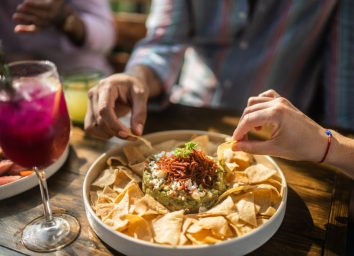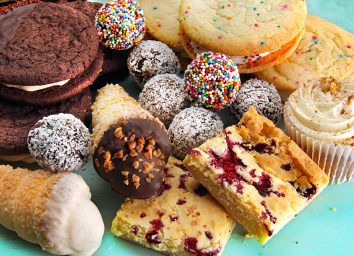68 "Healthy" Foods That Are Terrible for You
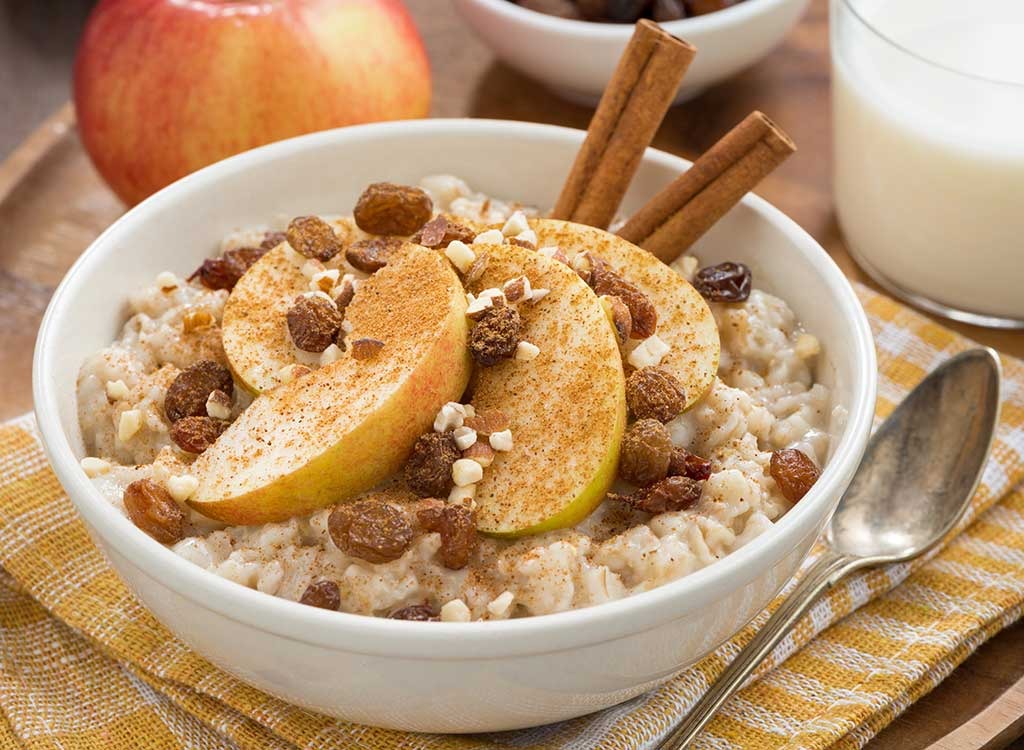
Many times when you decide to buckle down and start making better food choices, the first thing that comes to mind is that you want to incorporate more healthy foods into your diet. But you naturally might want to add a little something to change up the flavors a bit (we know you can't enjoy bland chicken and plain foods day after day), so you may douse your carefully constructed salad with a creamy dressing that overall seems harmless. However, you may be unwillingly adding extra fat, sugar, and sodium to your once-healthy meal. Even if you order a salad out, there are some restaurant salads that pack in 1,000 calories or more—yes, under the seemingly "healthy" moniker, no less.
Unfortunately, there are plenty of fake "healthy" foods out there, and salad dressing is just the beginning. From your granola bar being held together with less-than-savory sweeteners, to that organic cookie that is, well, still just a cookie, there are plenty of seemingly healthy foods that are actually not that great for you and your weight-loss goals. We're here to help you navigate these food traps by calling them out.
Here, we uncover the "healthy" foods that are anything but good for you! Instead, stock up on any of The 7 Healthiest Foods to Eat Right Now.
Granola
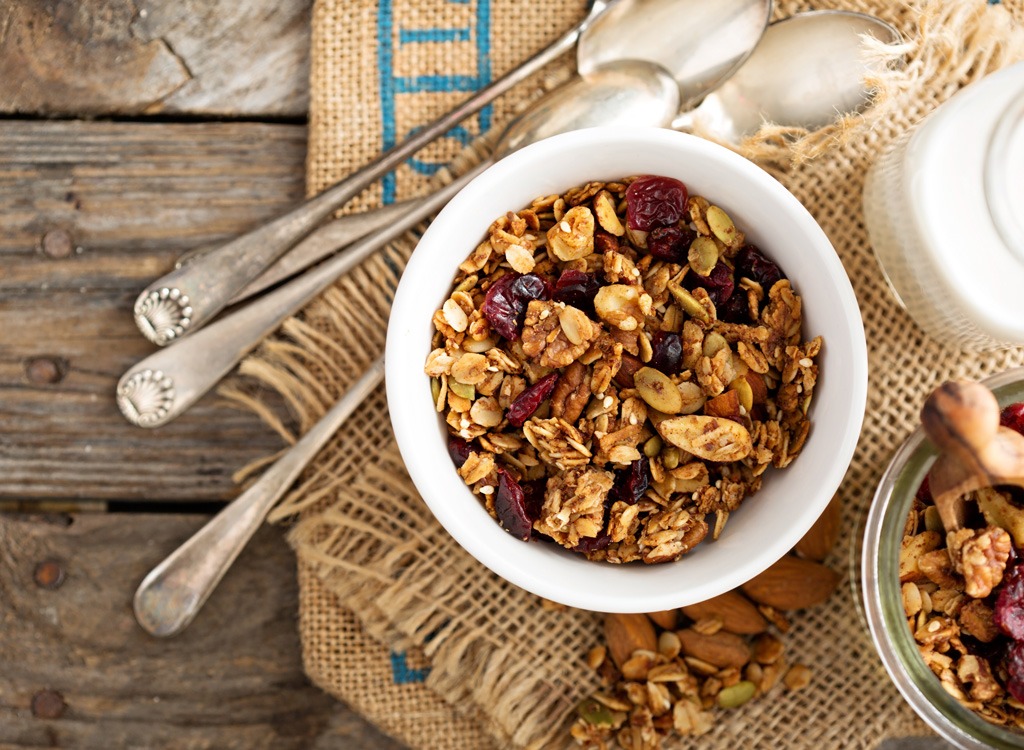
Granola's reputation as a health food isn't exactly well-earned. Many of the granolas at your local supermarket are made using butter, vegetable oil, and white sugar. Just a half-cup of Kellogg's Special K Touch of Honey Granola packs 9 grams of sugar coming from four different sources, including white sugar, honey, corn syrup, and molasses. Depending on the brand you buy, you may be consuming far more calories than you'd expect; many granolas have upwards of 400 calories per cup before adding milk, so make sure you're choosing low-sugar granola with wholesome ingredients.
Low-Fat Salad Dressing
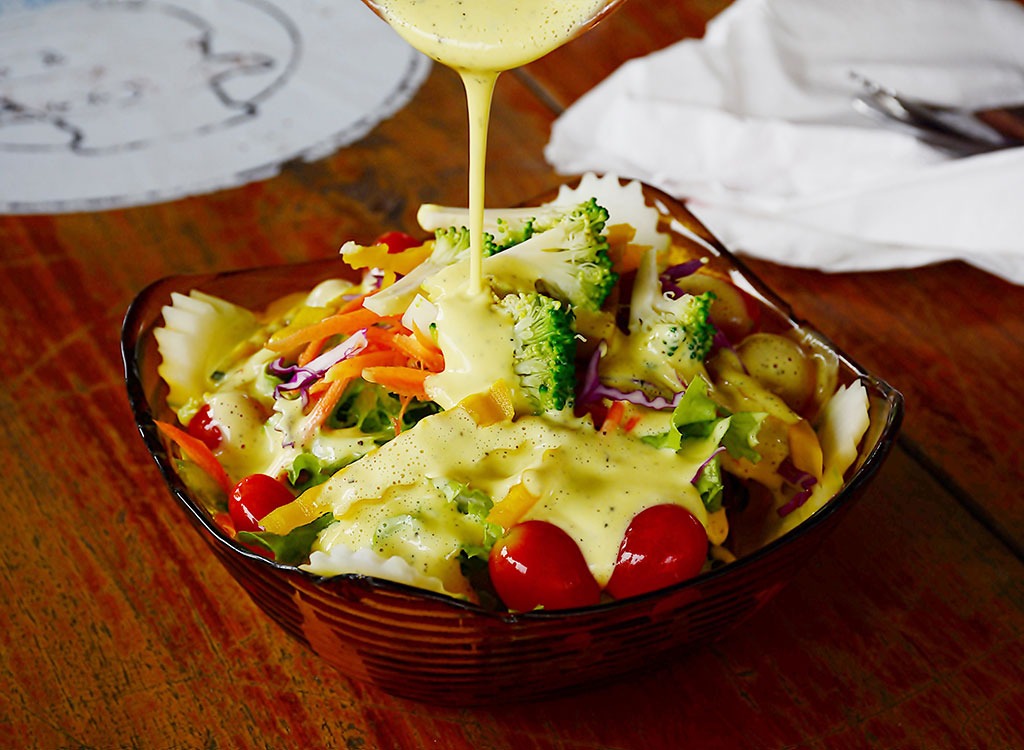
Low-fat foods were once thought to be weight loss-friendly, when, in fact, they're often just as bad, if not worse, than their full-fat counterparts. Low-fat salad dressings often make up for their lack of satisfying fat by adding sugar, high fructose corn syrup, salt, and scary additives and preservatives to the recipe instead. For instance, a two-tablespoon serving of Ken's Fat-Free Sun-Dried Tomato Vinaigrette has a shocking 14 grams of sugar—that's 5 grams more than you'd get in a fun-sized Snickers bar.
Green Juice
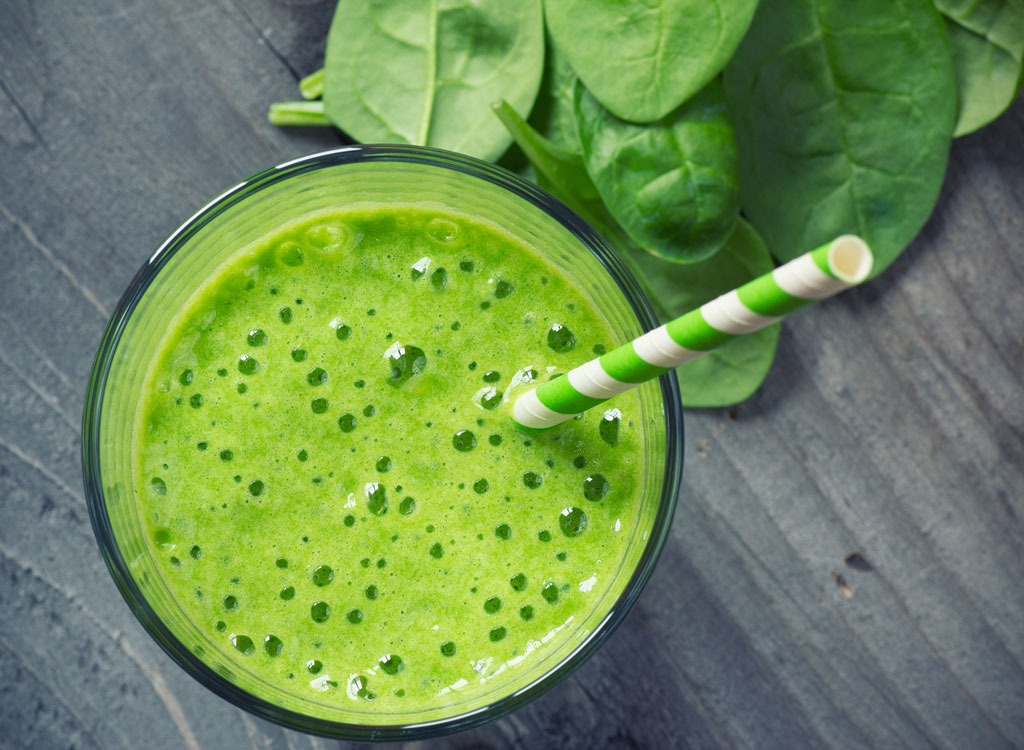
Green juice devotees may be in for a sugar shock. That pressed juice at your health food store may contain tons of veggies, but all the fruit used to sweeten it is loading it with sugar, too. Unfortunately, unlike a smoothie, your juice contains only a tiny amount of fiber, meaning you'll be hungry again before you know it.
Whole Wheat Bread
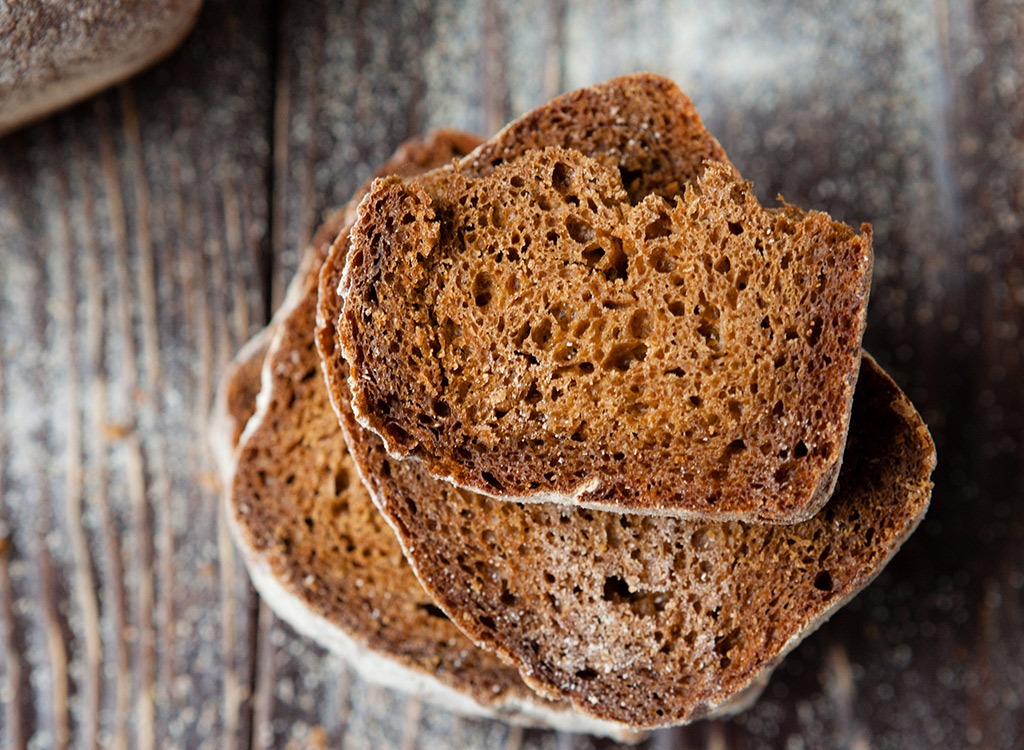
Whole wheat bread likely isn't the health food you were hoping for. Many loaves are packed with high fructose corn syrup and molasses, especially those that are marketed as "honey whole wheat." Choose a sprouted bread such as Ezekiel to make sure you're getting added nutrients without added sugar.
Veggie Chips
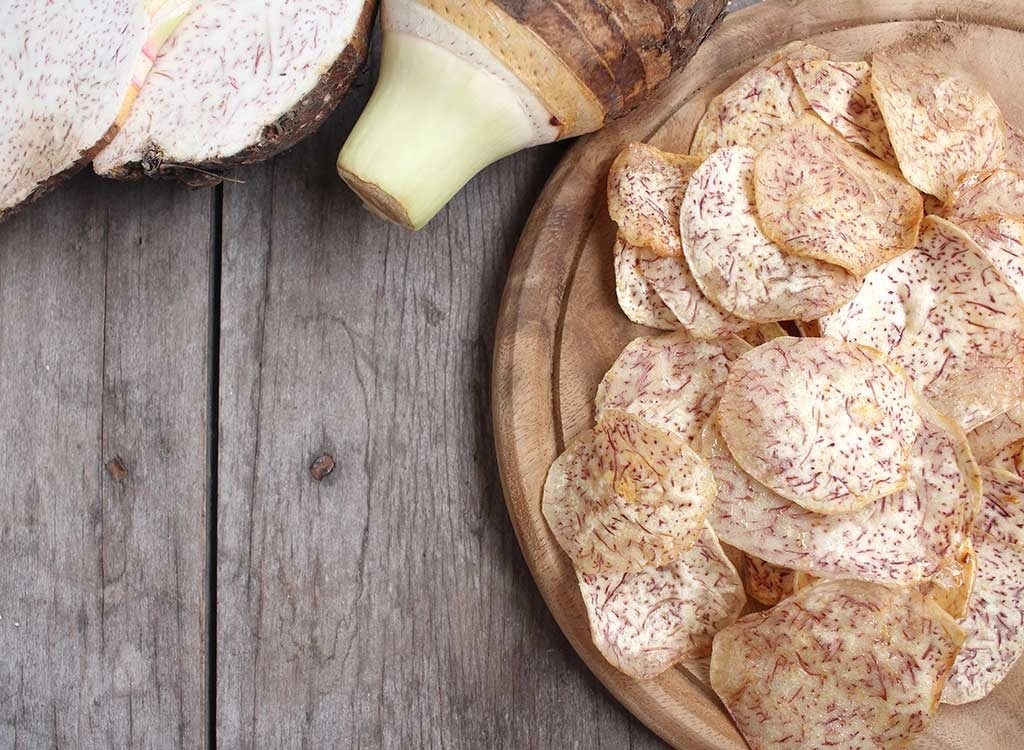
If it comes in chip form, chances are, it's not good for you. Much like their potato-only counterparts, many veggie chips are deep-fried and heavily salted. Unfortunately, those ultra-thin cuts of veggies used to make the chips crispy are also hardly enough to infuse your diet with the nutrients you'd expect from a vegetable-based snack.
Gluten-Free Snacks
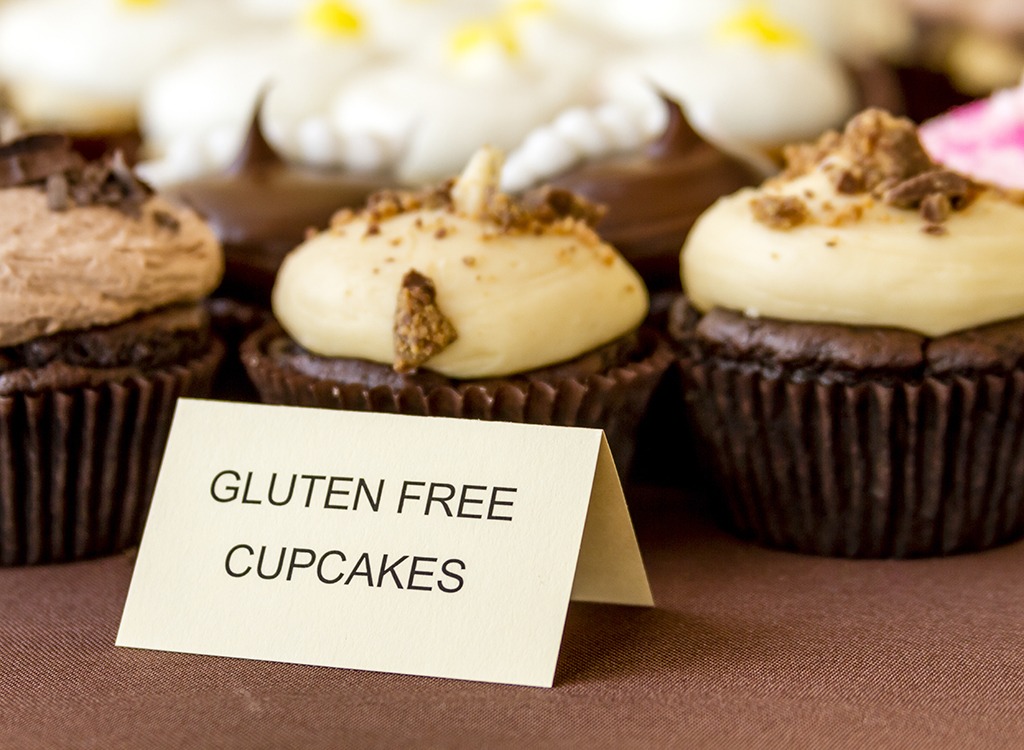
While going gluten-free can be a lifesaver for those suffering from celiac or gluten sensitivity, the gluten-free treats at your supermarket aren't always a bargain when it comes to your health. Many gluten-free treats have just as much sugar, if not more, than their gluten-filled counterparts, and the flours in place of wheat are often significantly more caloric and not any lower in carbs. "The majority of products that are created specifically to be marketed as 'gluten-free' generally tend to be much more processed, contain more calories and added sugar, and less fiber and protein than the similar products that contain gluten," says Laura Burak MS, RD, CDN.
Turkey Bacon
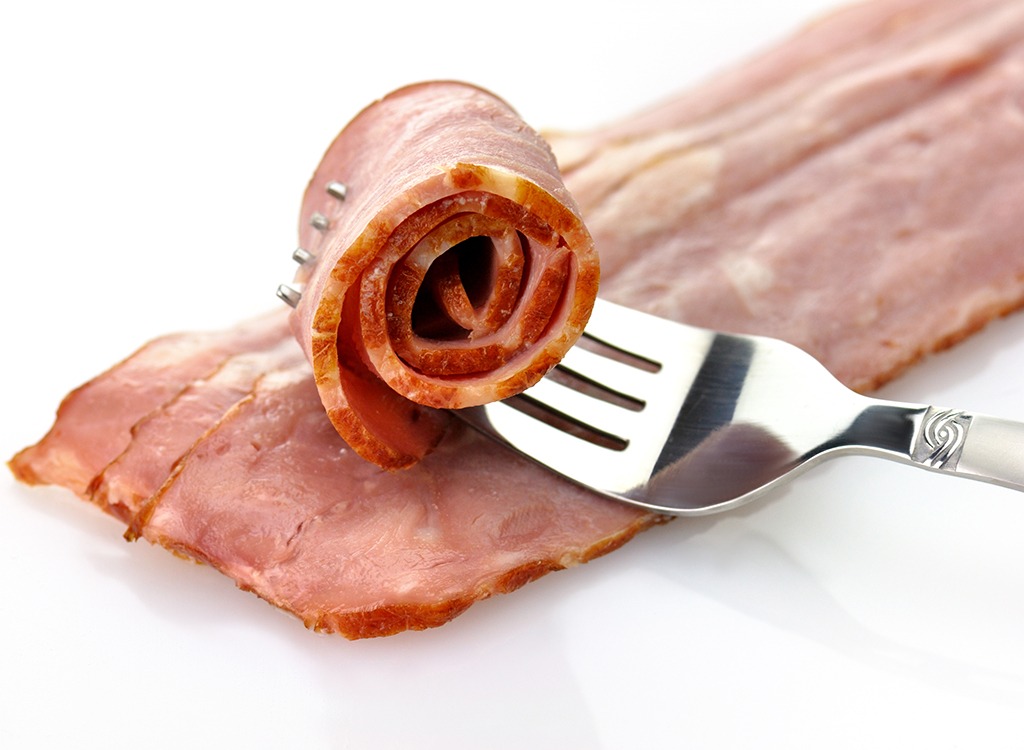
Think that turkey bacon is a healthy alternative to that of the pork variety? Think again. While choosing turkey bacon may shave a few calories off your meals, it's often loaded with artificial colors, sodium, saturated fat, and nitrates, which the International Agency for the Research of Cancer has deemed "probably carcinogenic."
Canned Soup
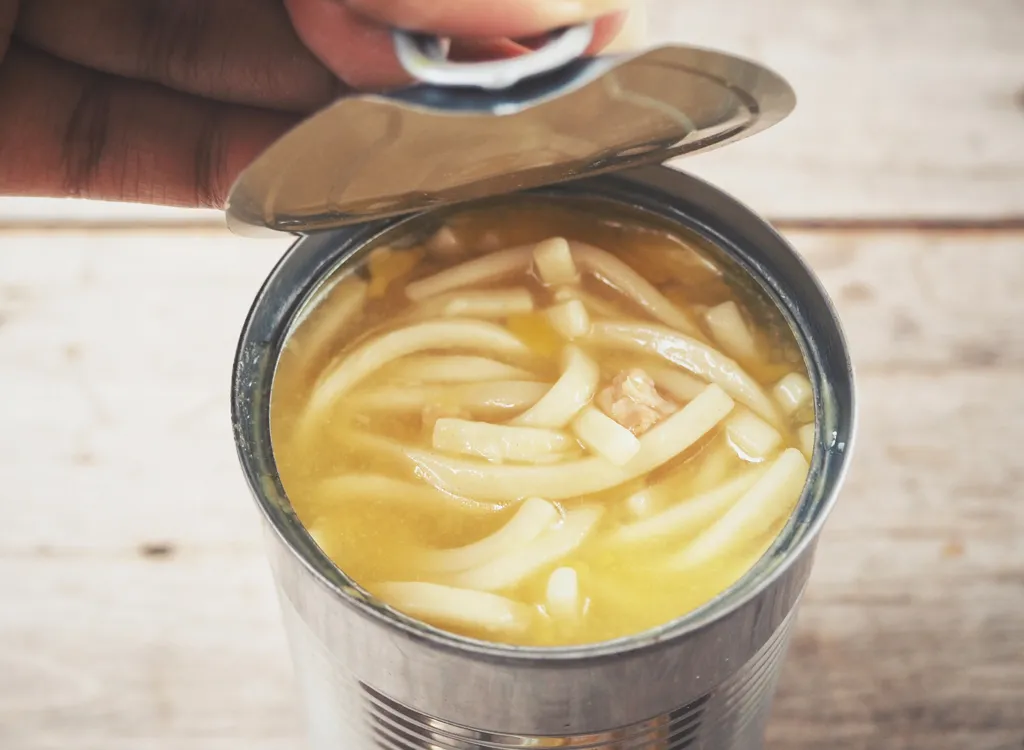
Cracking open a can of soup might just be the first step toward a less healthy body. While many brands of soup claim to be a great choice for the weight-conscious, they're often loaded with salt and sugar. One cup of Campbell's Harvest Tomato with Basil Soup has a whopping 16 grams of sugar as well as 33 percent of your sodium RDA per cup. Even worse, a study published in the Journal of Clinical Endocrinology and Metabolism has linked the BPA that often lines cans to an increased risk of obesity and insulin resistance.
Protein Bars
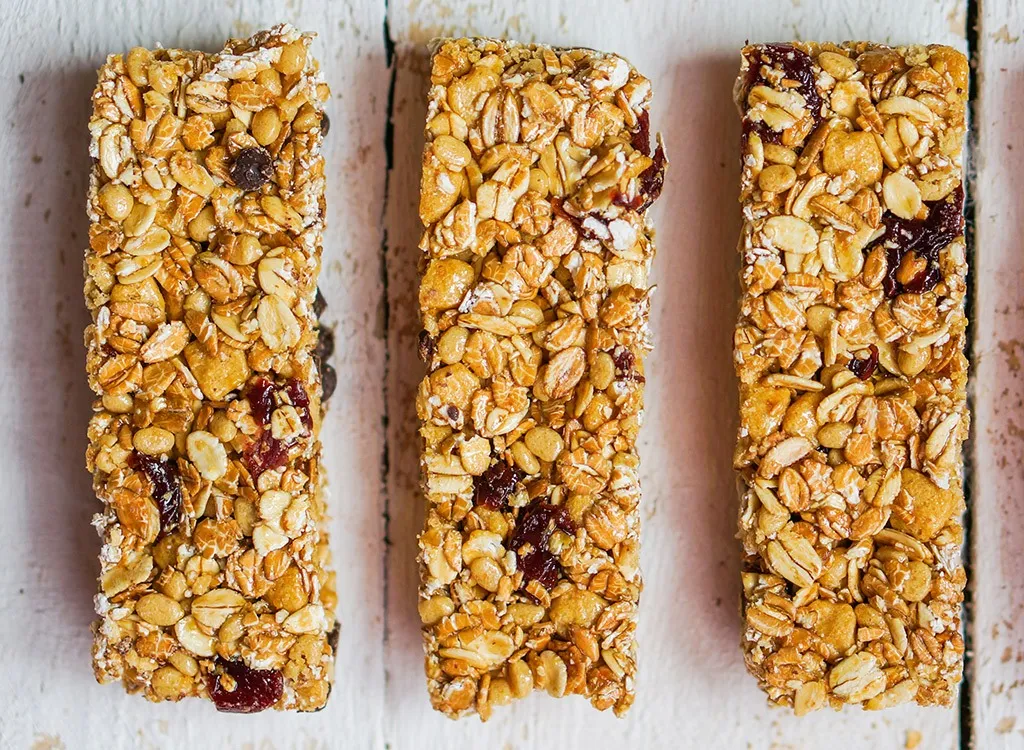
Protein can be a great way to fuel your muscles, but most protein bars are hardly health food. Between belly-bloating soy, sodium, artificial colors, sugar, and high fructose corn syrup, most protein bars are potential saboteurs to your well-being. Those sugar-free or low-carb protein bars are no better; research published in the Yale Journal of Biology and Medicine links the artificial sweeteners used to flavor many low-sugar foods to an increased risk for weight gain and sugar cravings.
Rice Cakes
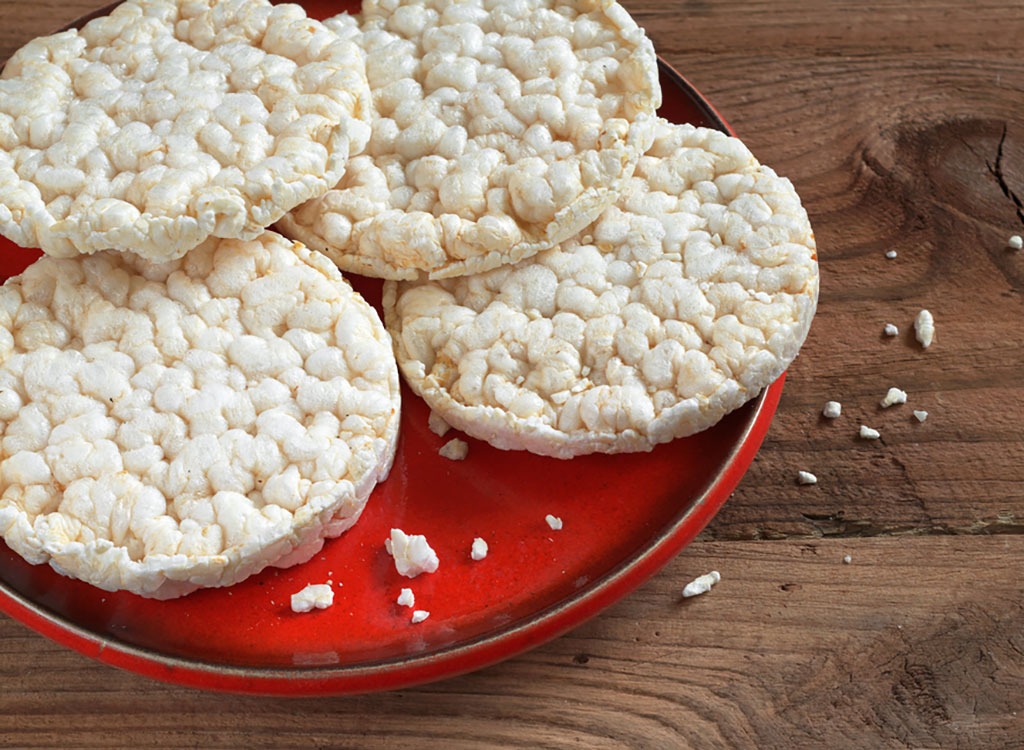
Rice cakes may be generally low in calories, but their toppings can turn them into junk in an instant. In addition to high sodium counts in savory flavors like cheddar and ranch, a single Quaker Caramel Corn rice cake has 3 grams of sugar, thanks to a combo of sugar, fructose, and maltodextrin.
Coconut Water
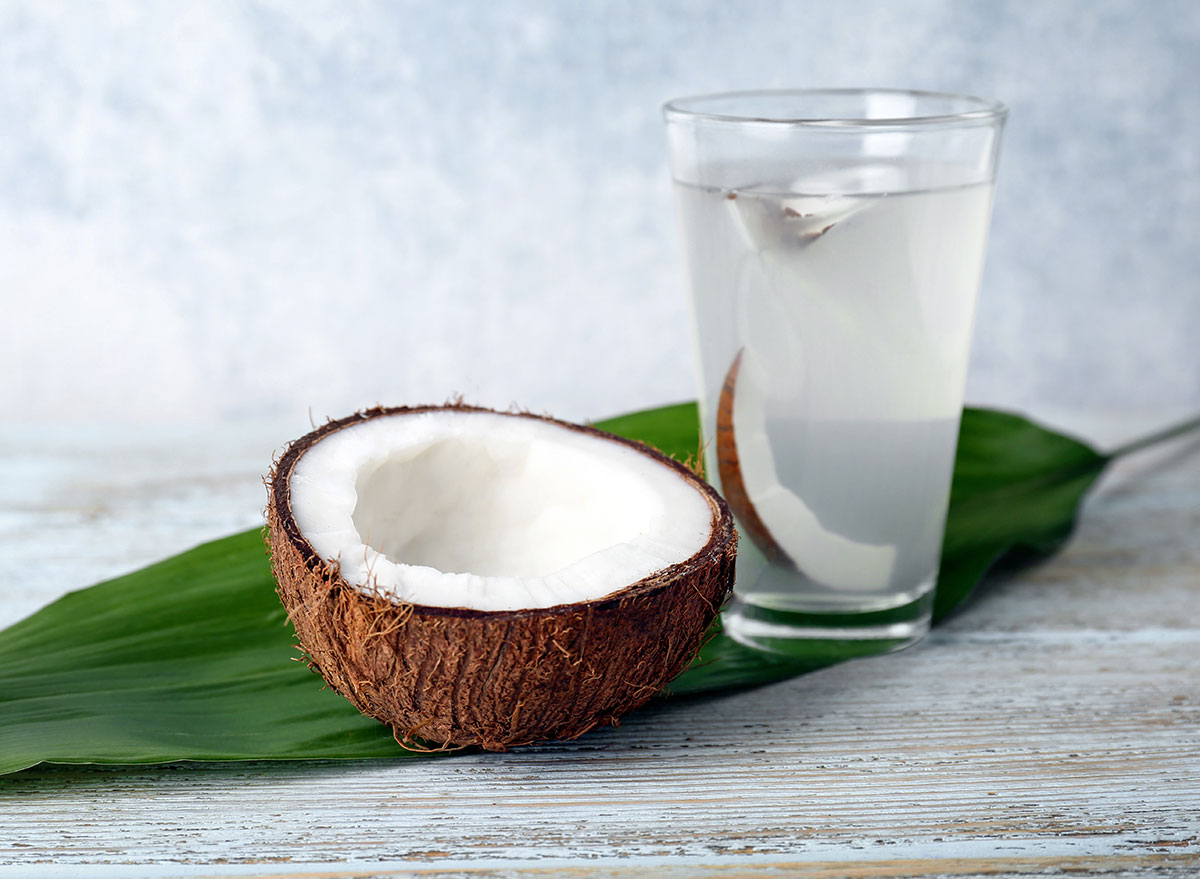
Ditch the coconut water and hydrate with water for better health. A single cup of Vita Coco's pineapple-flavored coconut water packs 15 grams of sugar. While it's better to sip on coconut water than soda, keep the fruity drink to a once-a-week treat.
Yogurt
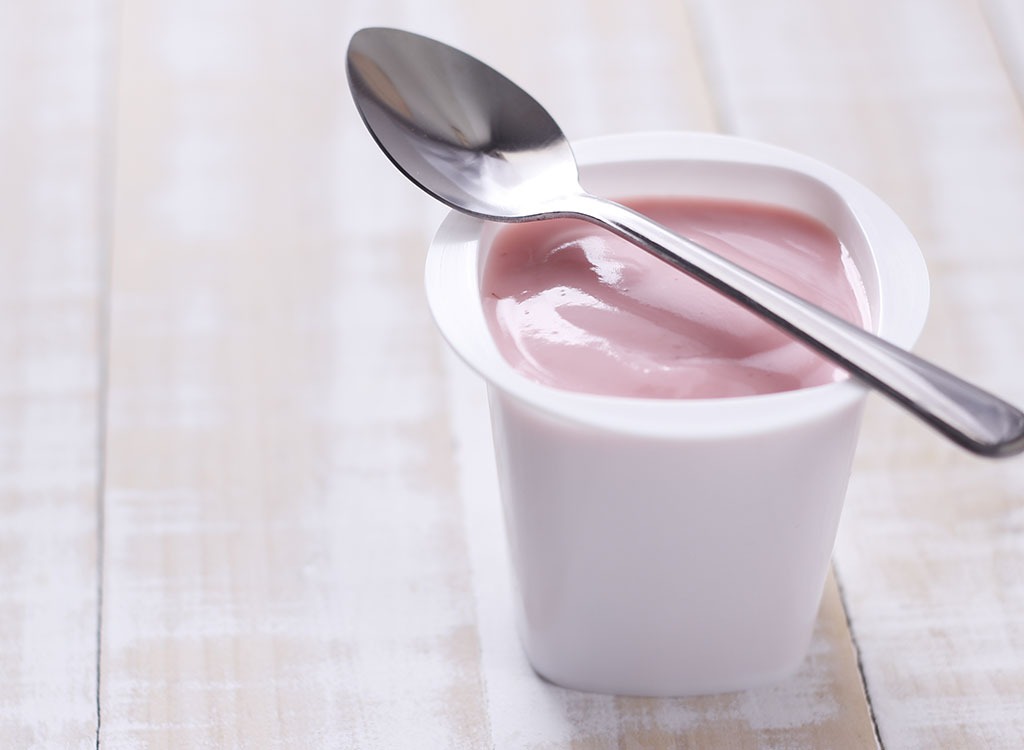
While yogurt may be touted as a superfood for weight loss and gut health, it's not quite the cure-all you might imagine. Flavored yogurt is loaded with potentially-carcinogenic artificial colors, flavors, and loads of sugar. It can be just as bad as ice cream!
Flavored Oatmeal
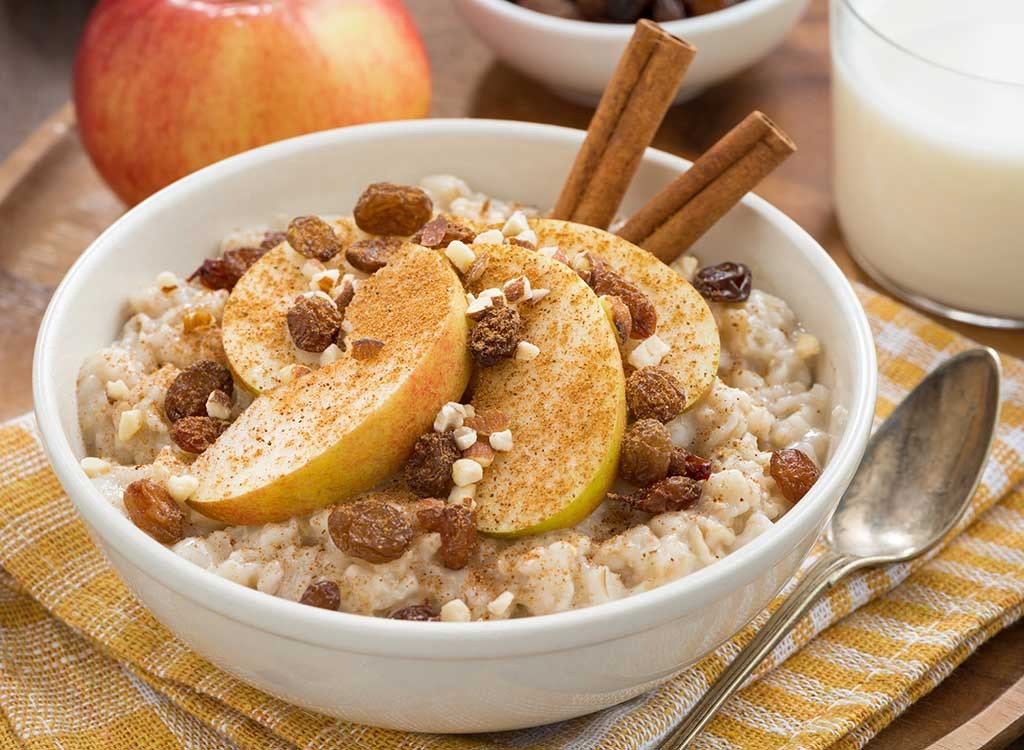
Make sure that bowl of oatmeal isn't starting your day with a boatload of sugar. Just one packet of Quaker Maple and Brown Sugar Oatmeal has 12 grams of sugar in it, making it a poor choice for anyone trying to stick to a healthy diet. Instead of sugary oatmeal, start your day off right with these healthy overnight oats recipes for weight loss!
Açai Bowls
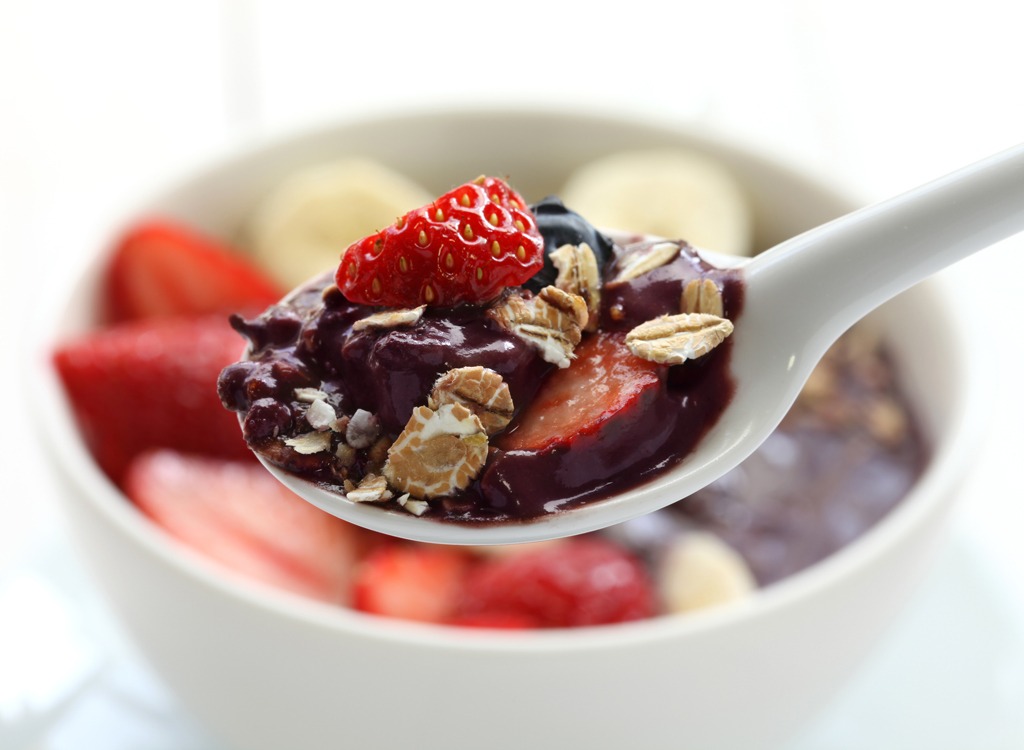
Don't waste your money on açai bowls—they might not be the health food you'd hoped for. Many açai bowls are high in calories, and some even use sugary, belly-bloating frozen yogurt as their base instead of whole-fruit smoothies.
Dried Fruit
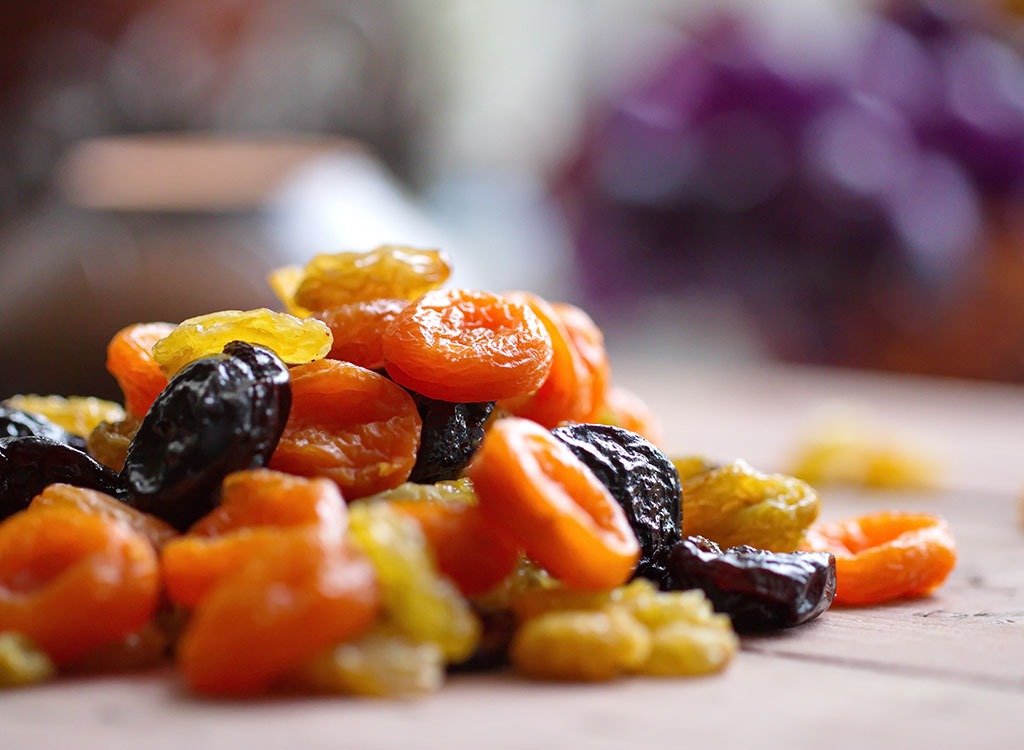
That dried fruit you've been snacking on could be adding tons of sugar to your diet. Many commercially-prepared dried fruits are coated with added sugar and preserved using sulfites, one of the most common food allergens.
Spicy Tuna Rolls
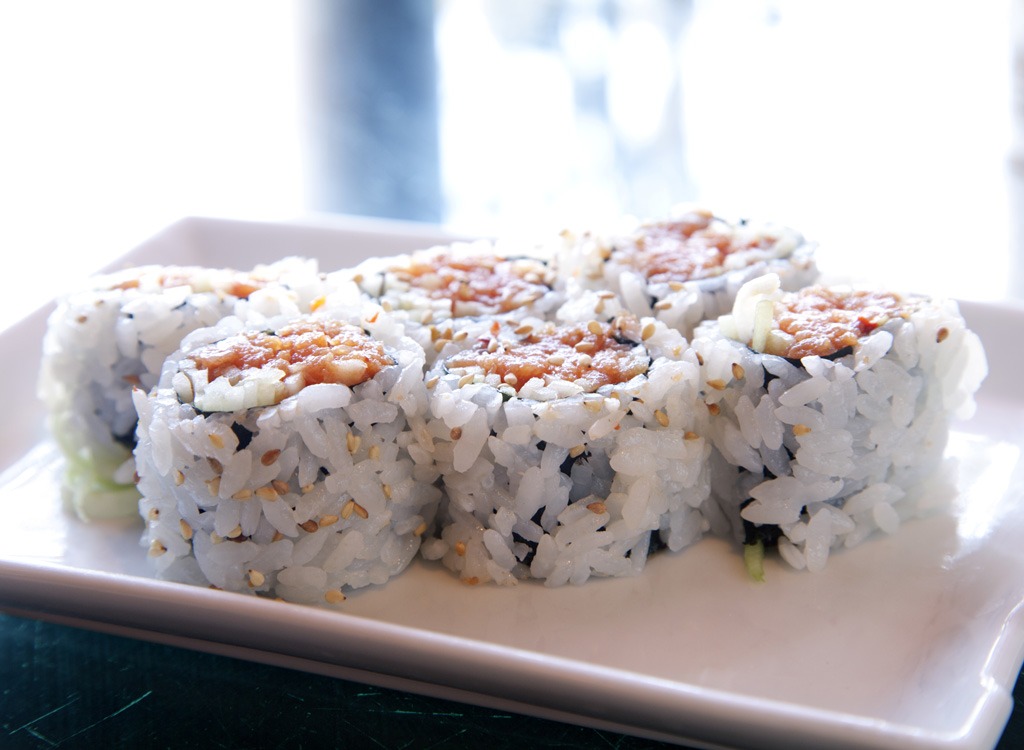
While certain types of sushi can load your diet with anti-inflammatory omega-3s, that spicy tuna roll is also loading it with saturated fat. The mayo-based sauce used to give the spicy tuna roll its heat adds a significant amount of fat to the recipe, as well as making it nearly twice as caloric as a traditional tuna roll. The next time you eat out, choose from our list of 25 restaurant meals under 500 calories instead.
Baked Chips
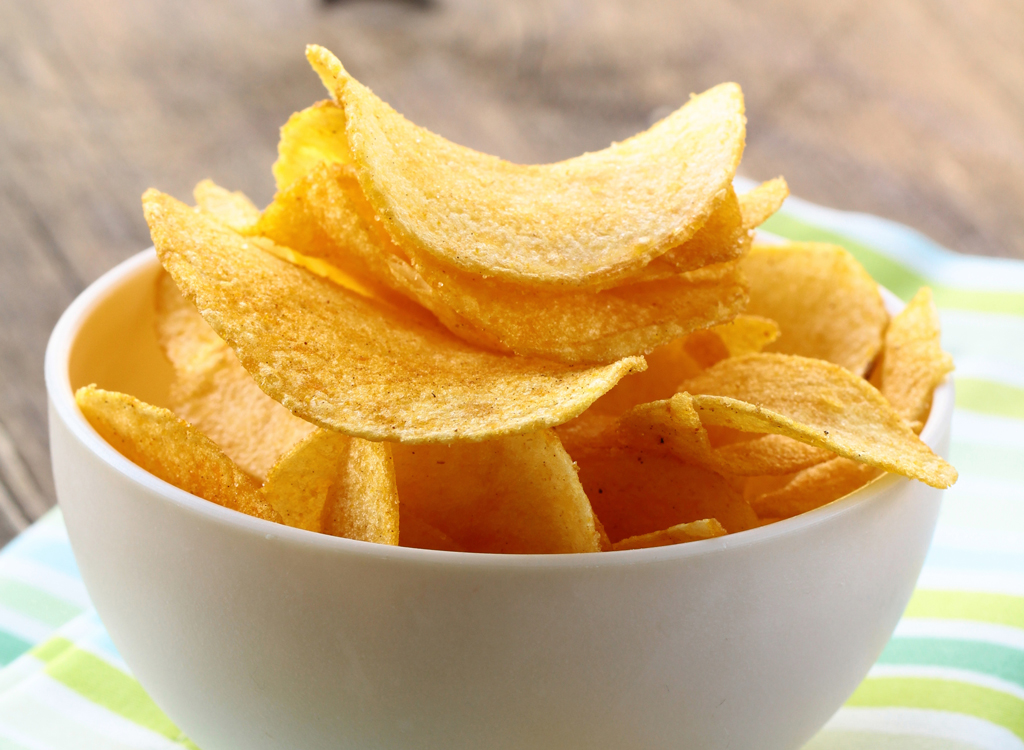
Baked chips may have less fat than their deep-fried counterparts, but they're hardly a bargain for your health. Baked chips often pack in more sodium to make up for the lack of fat, and because they're marketed as a healthier option, you might just convince yourself that it's no big deal to eat more of them.
Vegetable Oil
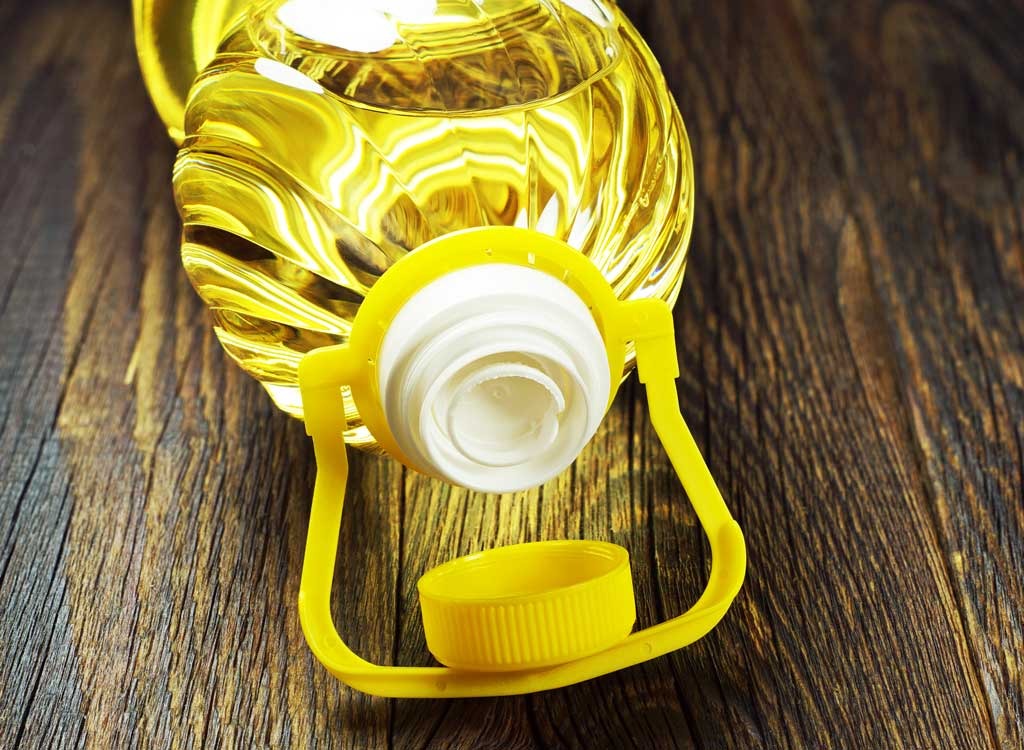
Sadly, not everything that comes from a vegetable is a health food. Partially hydrogenated vegetable oil can raise bad cholesterol and increase your risk for heart disease.
Protein Shakes
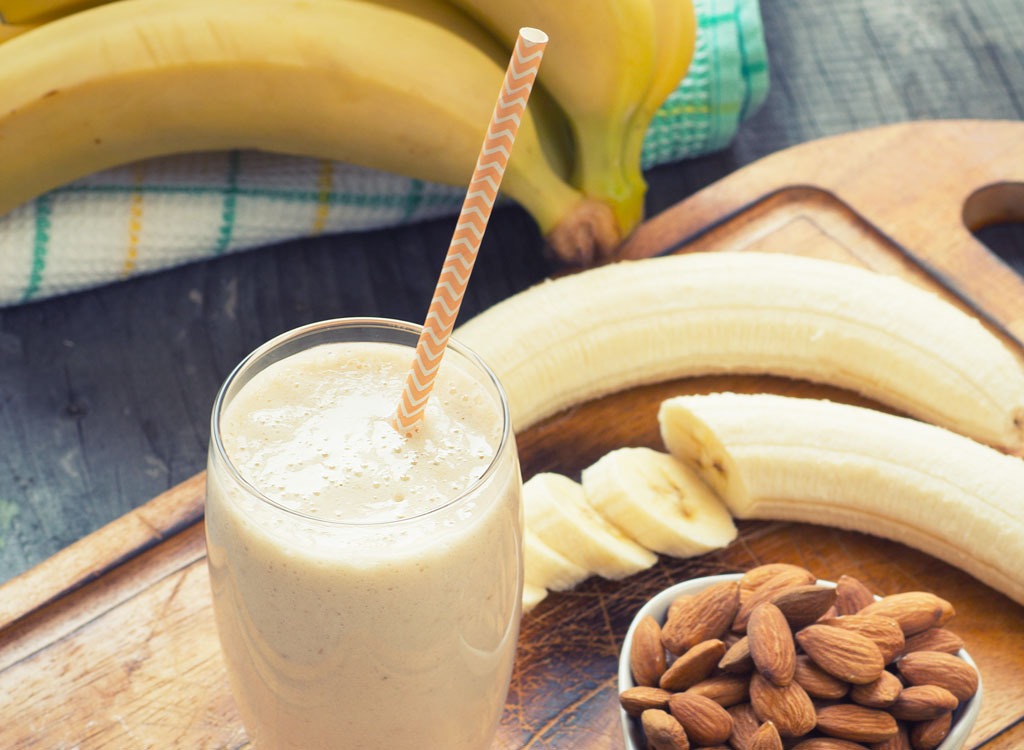
That protein shake may have more in common with a milkshake than you'd like. Many protein shakes are loaded with sugar and belly-bloating dairy, and the sugar-free ones aren't much better, thanks to their potentially weight gain-inducing artificial sweeteners. Up your protein intake the healthy way by enjoying our approved 22 best protein shake recipes for weight loss instead.
Low-Carb Snacks
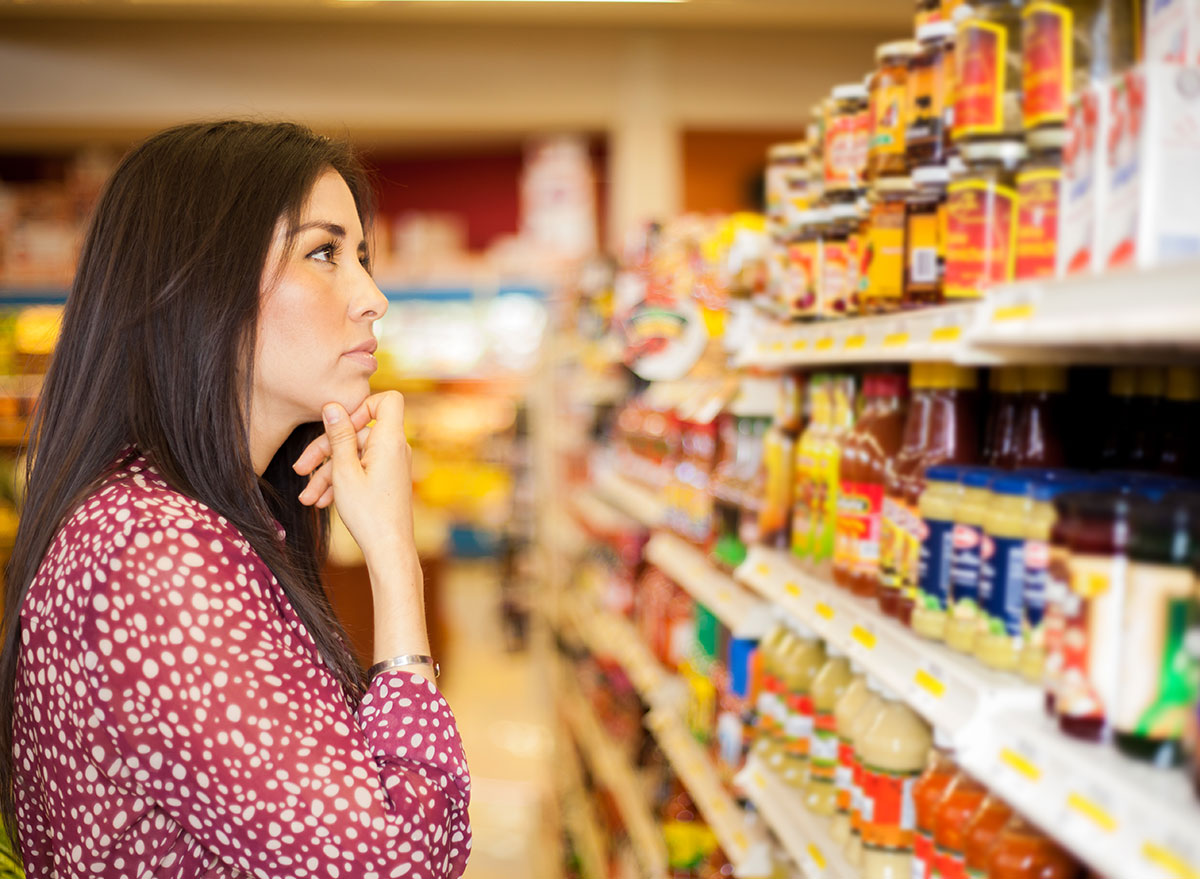
Just because something is labeled "low-carb" doesn't mean it's healthy. Case in point: sugar-free cookies, pork rinds, bunless double cheeseburgers, etc. At the end of the day, junk food is still junk food whether it's loaded with carbs or not.
Microwaveable Popcorn
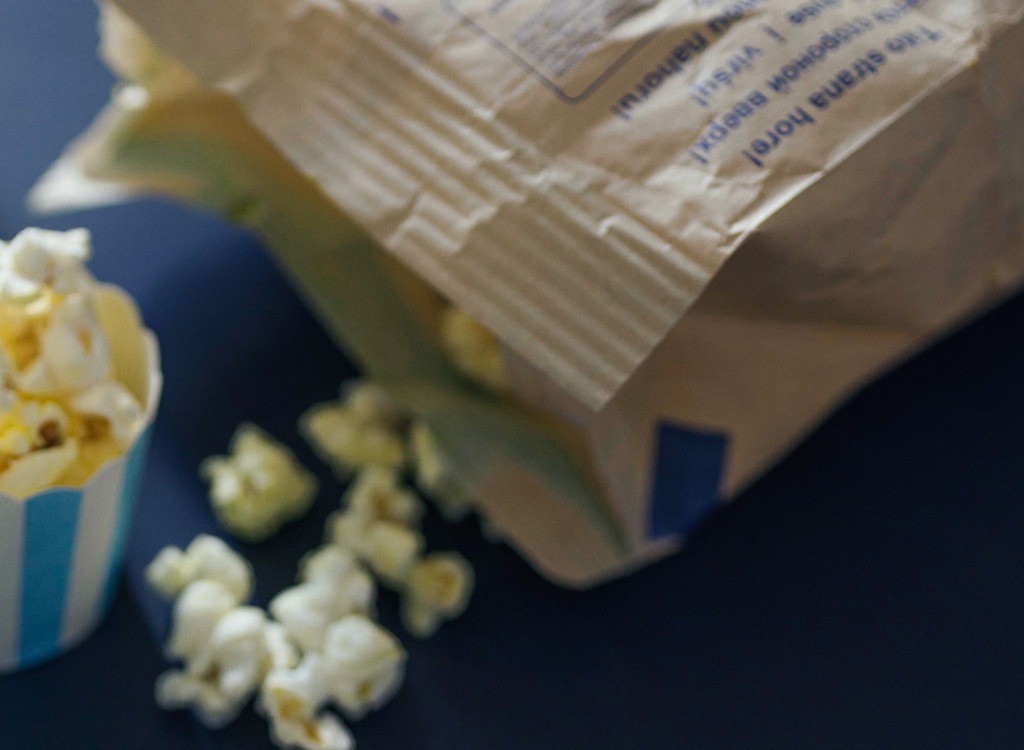
Popcorn can sometimes be low in calories, but much of what you'll find on the shelves of your local supermarket isn't so healthy. Many varieties of popcorn are loaded with salt; one serving of Orville Redenbacher's Ultimate Butter Popcorn has 4.5 grams of saturated fat and 330 milligrams of sodium.
Soy Milk
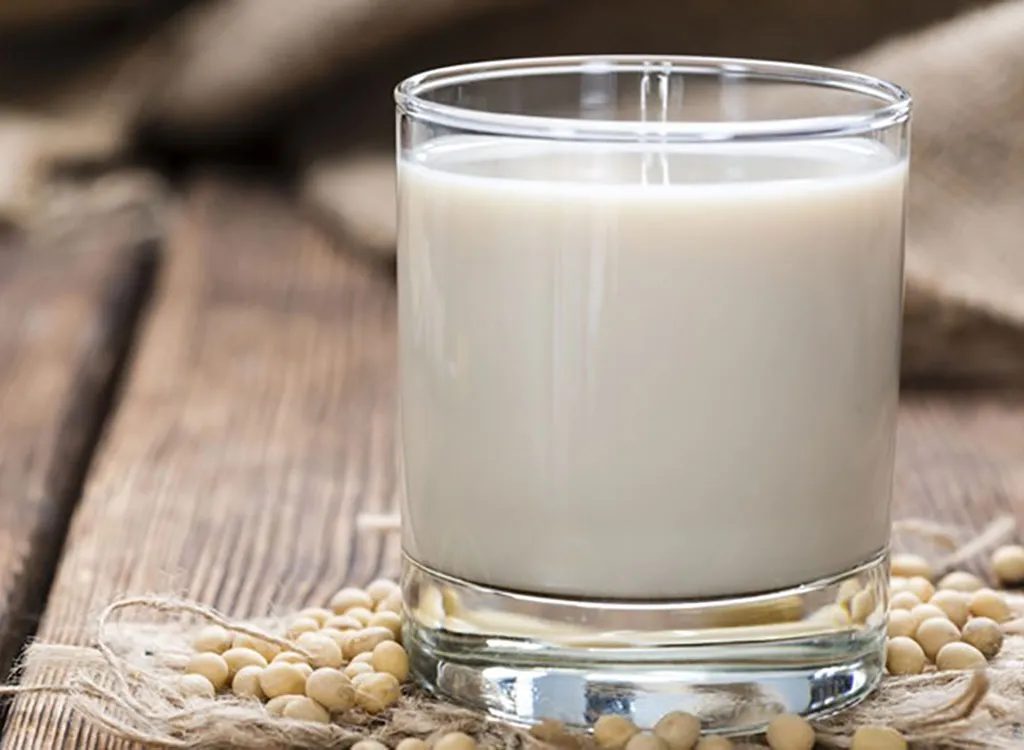
Your favorite flavored soy milk may even worse for you than the dairy variety. In addition to being an endocrine disruptor, potentially wreaking havoc on individuals with hormonal issues, soy milk is often heavily sweetened. A cup of Silk chocolate soy milk has 15 grams of sugar, and the original variety packs 7 grams of the sweet stuff.
Parfaits
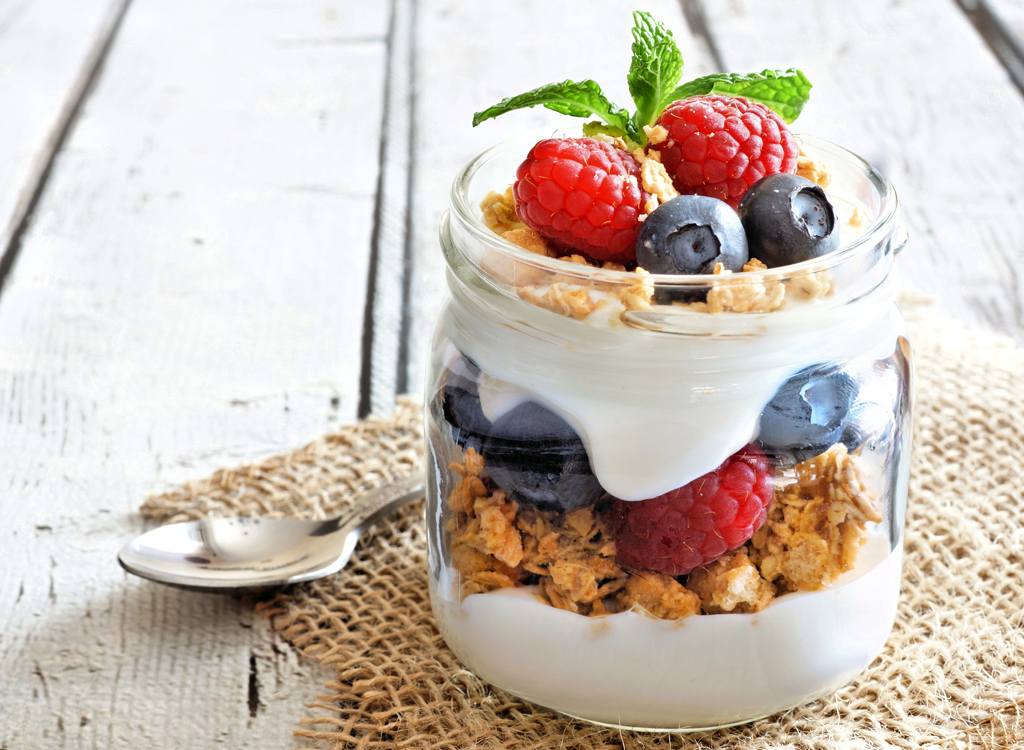
Fruit may be good for you, but the other ingredients in parfaits certainly outweigh its benefits. Sugary granola, flavored yogurt, and whipped cream definitely aren't doctor-approved foods.
Veggie Burgers
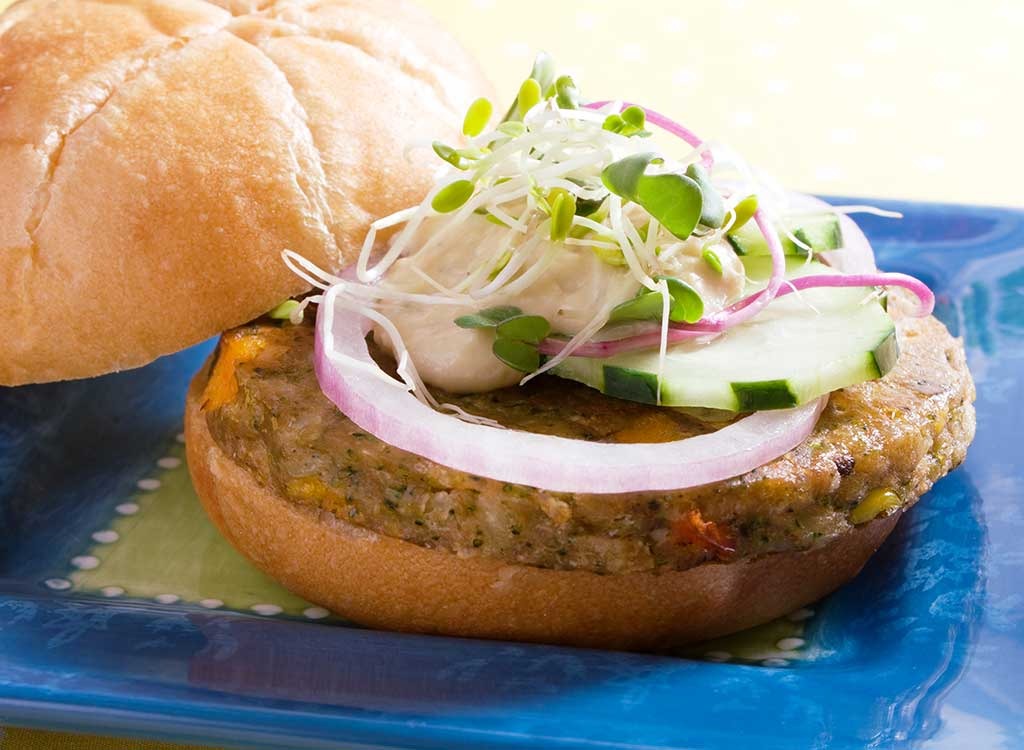
Throwing those veggie burgers on the grill might not do much for your health in the long run. In addition to bloat-inducing soy, many veggie burgers are loaded with salt, fat, and preservatives that make them a poor choice for anyone trying to eat healthier.
Frozen Yogurt
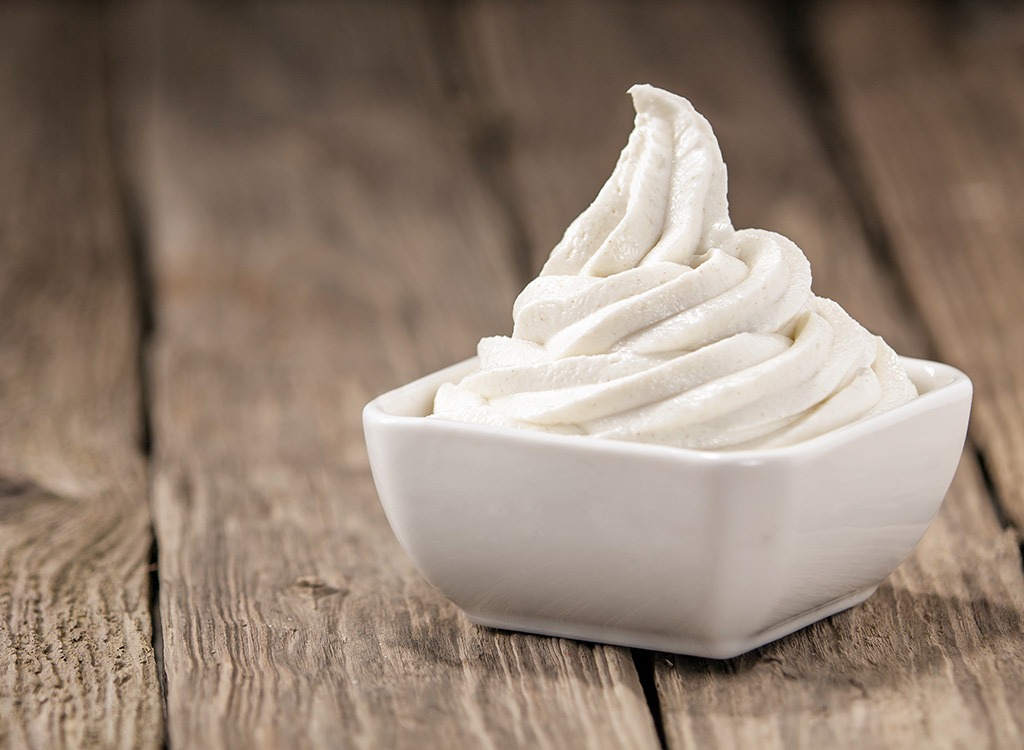
Frozen yogurt's reputation as a healthy alternative to ice cream may be underserved because it's still jam-packed with sugar. One serving, or 2/3 cup, of Ben & Jerry's Half Baked Froyo packs in 30 grams of sugar—yikes!
Bottled Smoothies
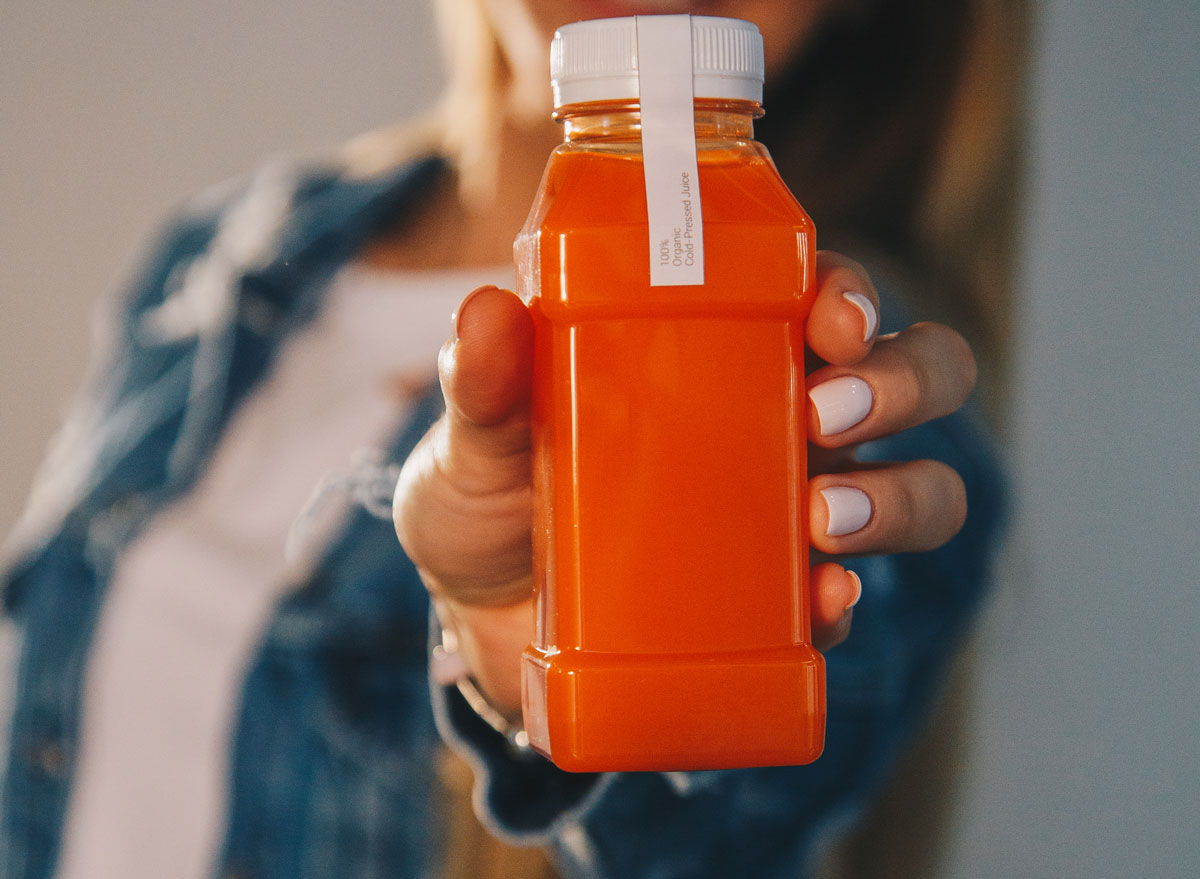
Those bottled smoothies could be adding serious sugar and calories to your diet. A large Jamba Juice Orange Dream Machine smoothie has 590 calories and 120 grams of sugar, while the small packs in 350 calories and a whopping 71 grams of sugar. For a better bet, blend up your favorite fruits with some ice, and make sure to avoid these unhealthiest restaurant smoothies in America!
Organic Snacks
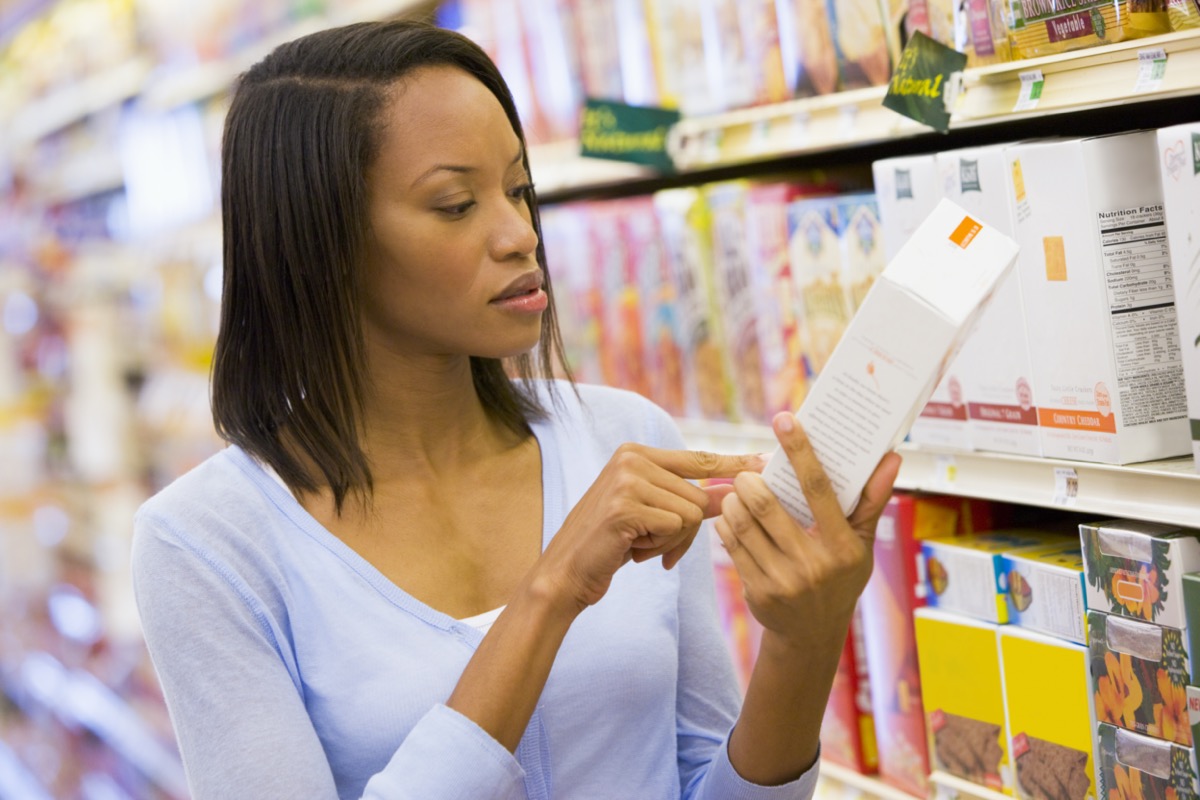
Organic is one of those food industry buzzwords that might not mean quite what you think it does. What it definitely doesn't convey is the healthiness of any food; an organic cheese puff or a candy bar that's packed with fat or sugar is just as likely to contribute to your weight gain as a non-organic one.
Egg Substitutes
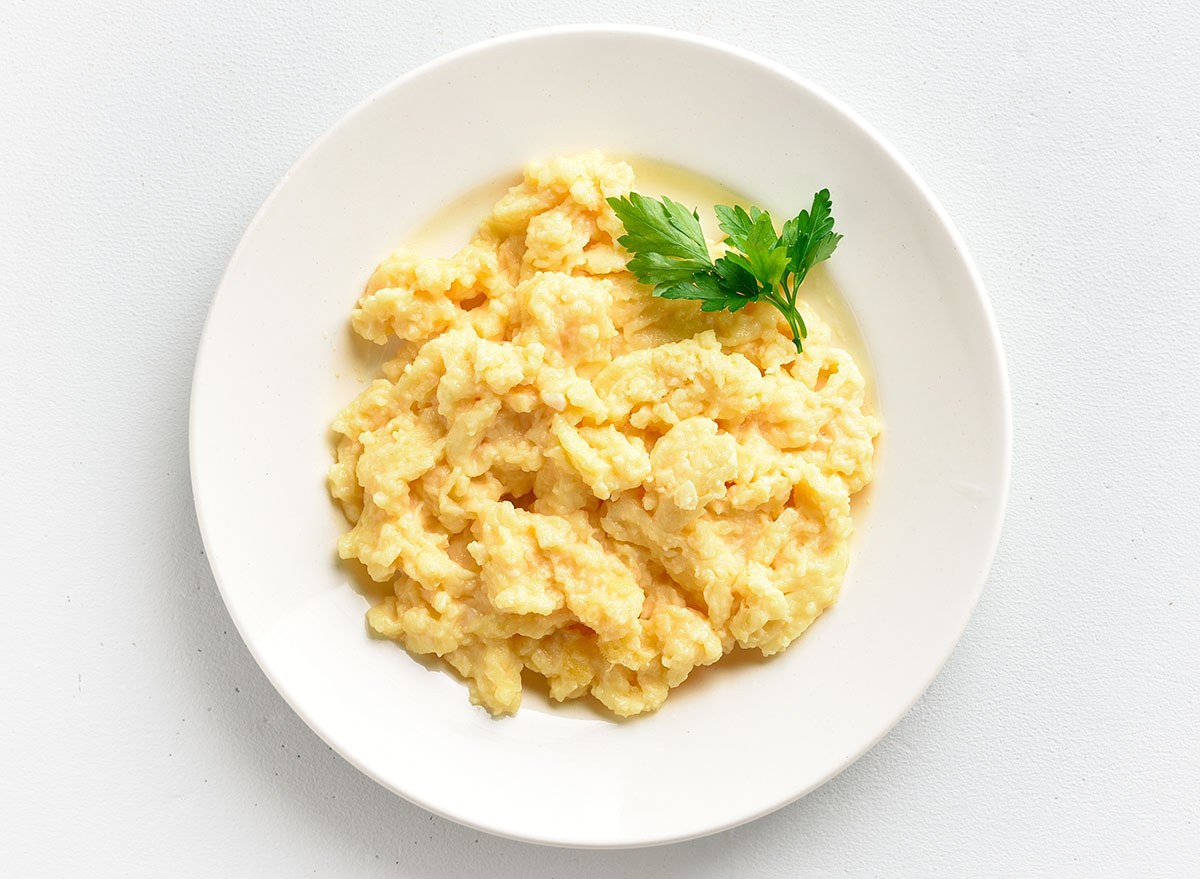
If you're eating egg substitutes, you're missing out on a whole host of nutrients. Egg substitutes are mostly egg whites, meaning you're not getting the wealth of vitamins contained in egg yolks, including vitamin D, which research published in the American Journal of Clinical Nutrition has linked to lower rates of obesity and reduced abdominal fat.
Trail Mix
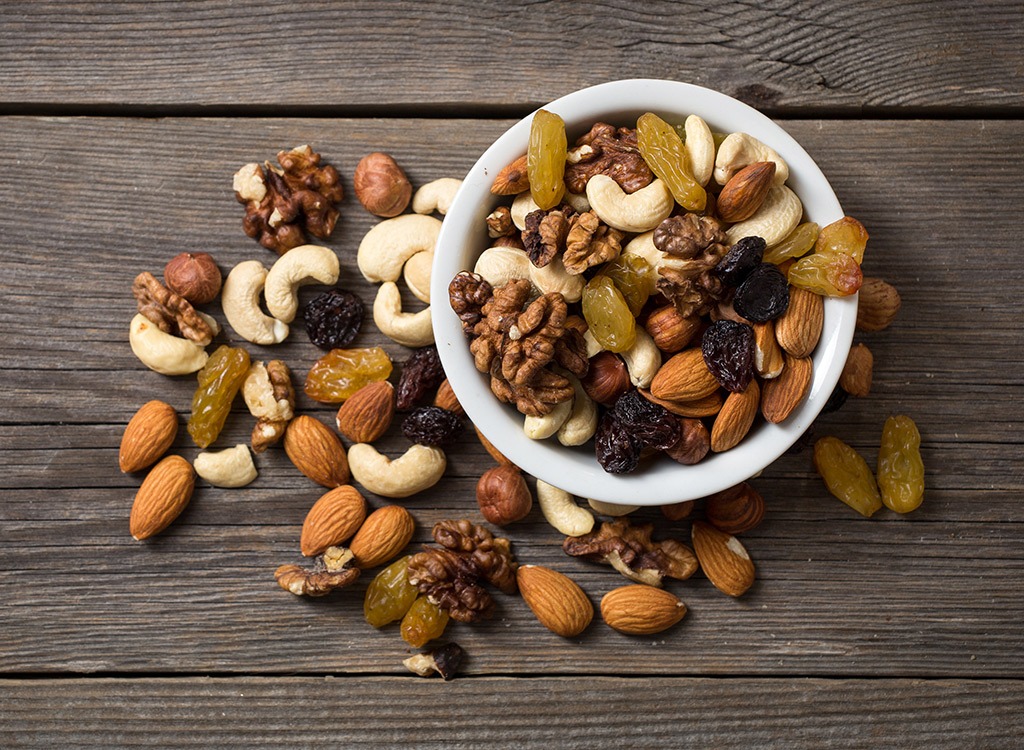
If we're being honest with ourselves, trail mix is often little more than an excuse to eat chocolate chips and sugary dried fruit by the handful. Opting for a handful of raw nuts instead can help you stay full without all the extra calories and sugar.
Skim Milk
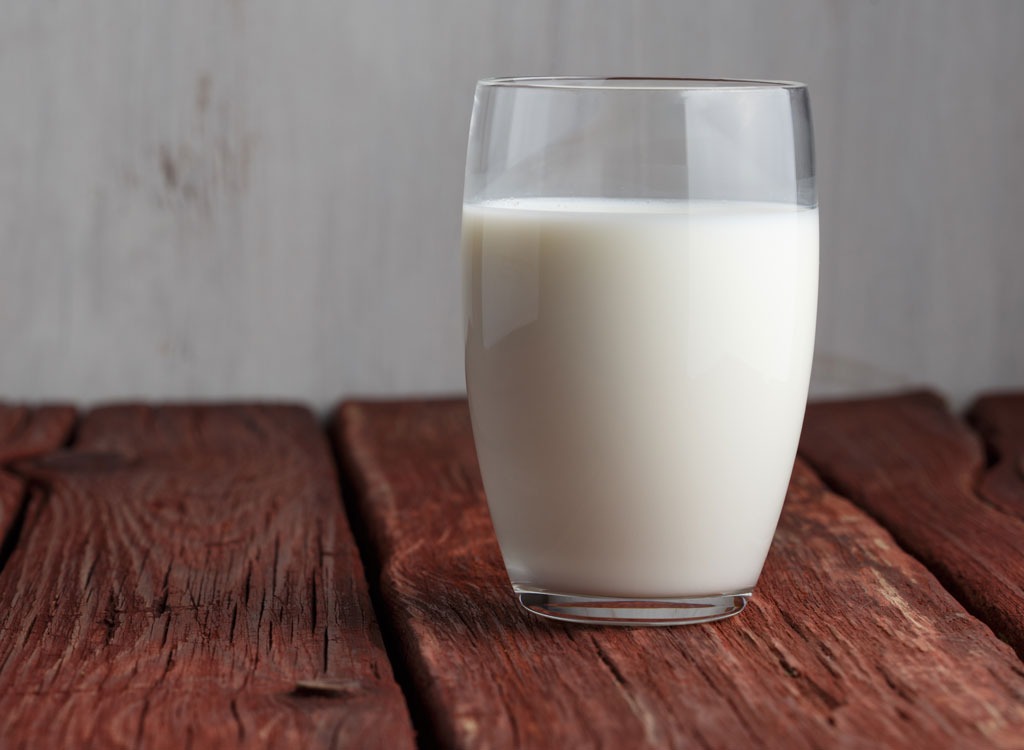
Skim milk doesn't just have less flavor than the full-fat stuff—it also may be less good for you in general. Research published in Circulation suggests that full-fat dairy products are linked to lower rates of diabetes, and researchers at the University of Texas Health Science Center at Houston found no link between full-fat dairy and heart disease. Ditch the skim milk and slim down by adding the best-ever fat-burning foods to your menu!
Veggie Pizza
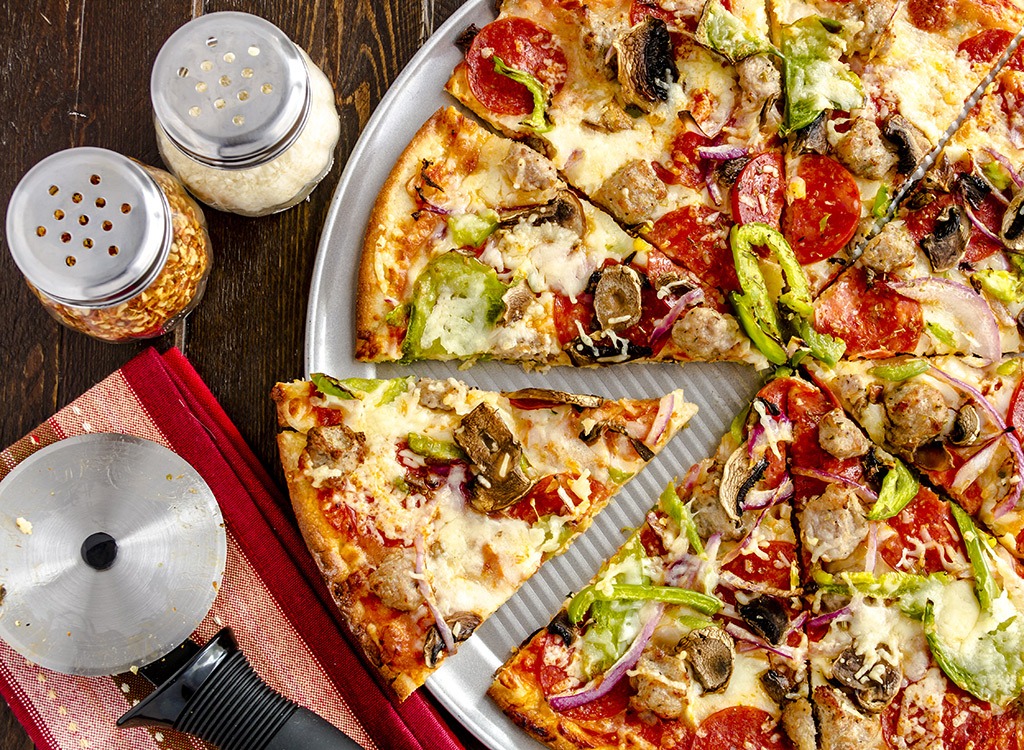
Veggie pizza may have more color than your average slice, but its benefits more or less stop there. The same white flour crust and tons of cheese make most veggie pizzas just as caloric and high in fat as a regular slice.
Margarine
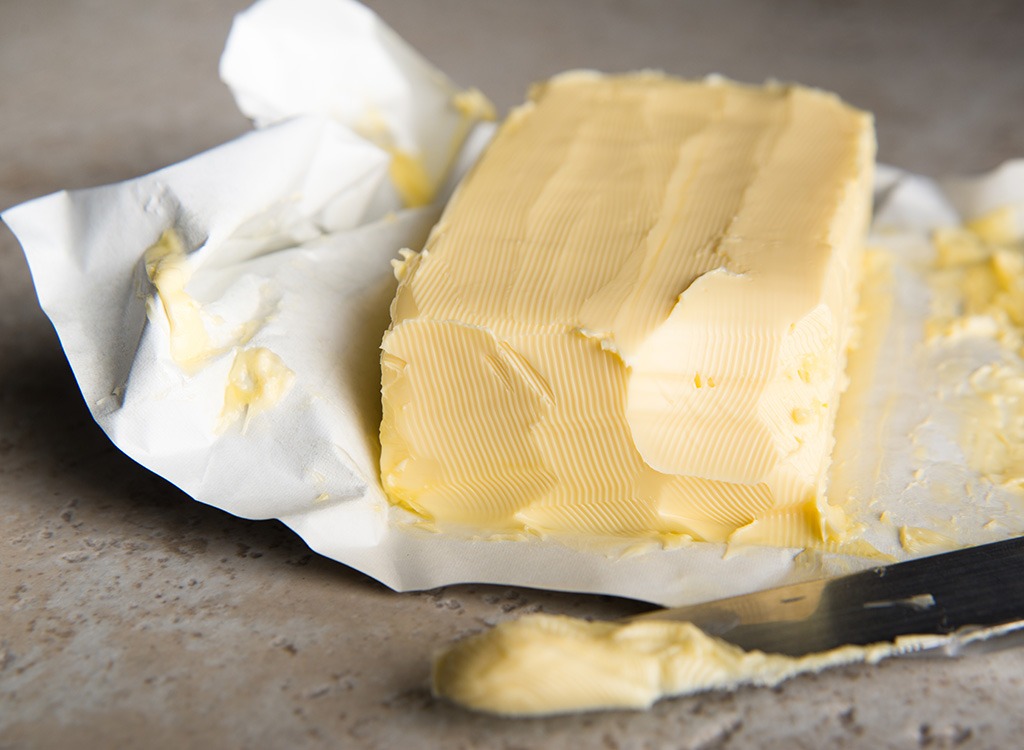
Margarine may have once been heralded as being a healthy alternative to butter, but it's actually worse for you. A tablespoon of margarine can contain upwards of 2 grams of trans fat, increasing your risk of heart disease and high cholesterol along the way.
Pita Chips
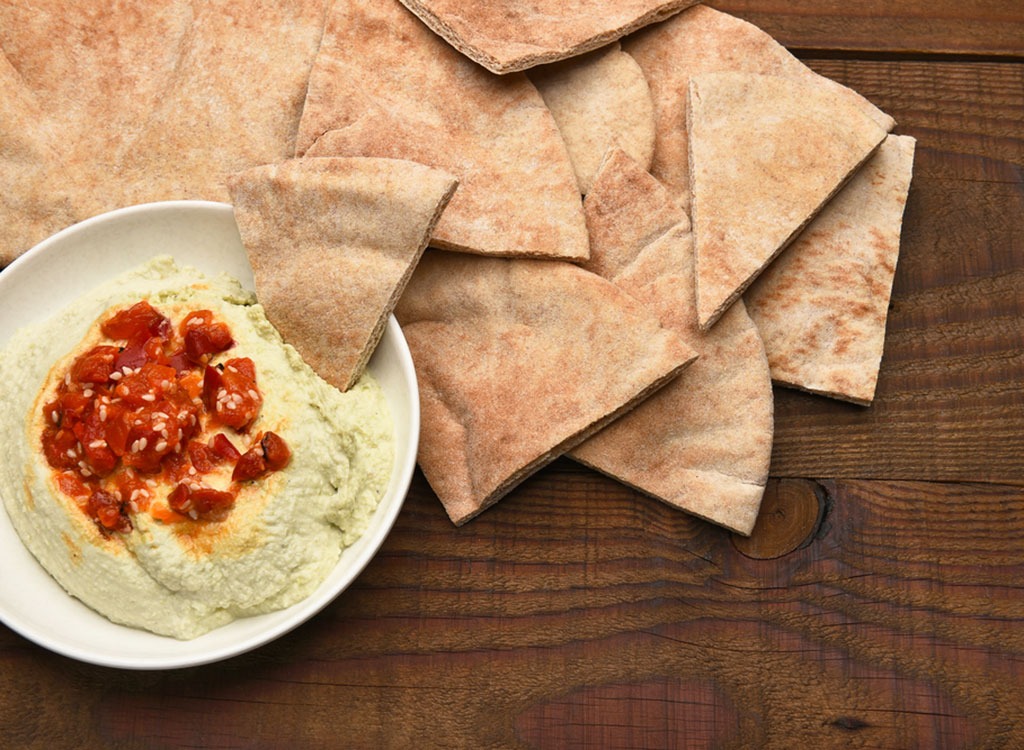
Don't assume that opting for pita chips instead of potato or tortilla chips will do much for your health. While they're not deep-fried, pita chips are generally little more than white flour topped with butter, sugar, and some seasonings. A 1-ounce serving (just 7 chips) of Stacy's Parmesan Garlic & Herb Pita Chips has 130 calories has just 20 fewer calories than an equivalent serving of Doritos Nacho Cheese.
Yogurt-Covered Raisins
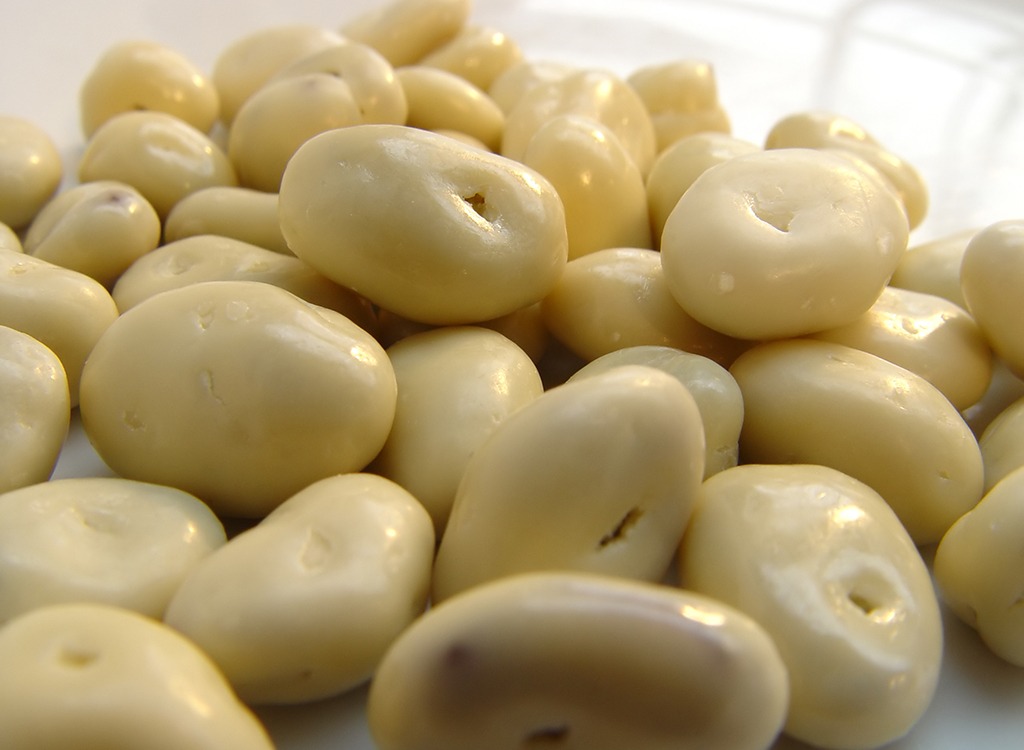
Don't ruin the health benefits of your raisins by adding sugary yogurt to them. A 1-ounce serving of yogurt-covered raisins packs 19 grams of sugar and 140 calories—that's a 30 percent jump from the calorie count of regular raisins.
Low-Fat Peanut Butter
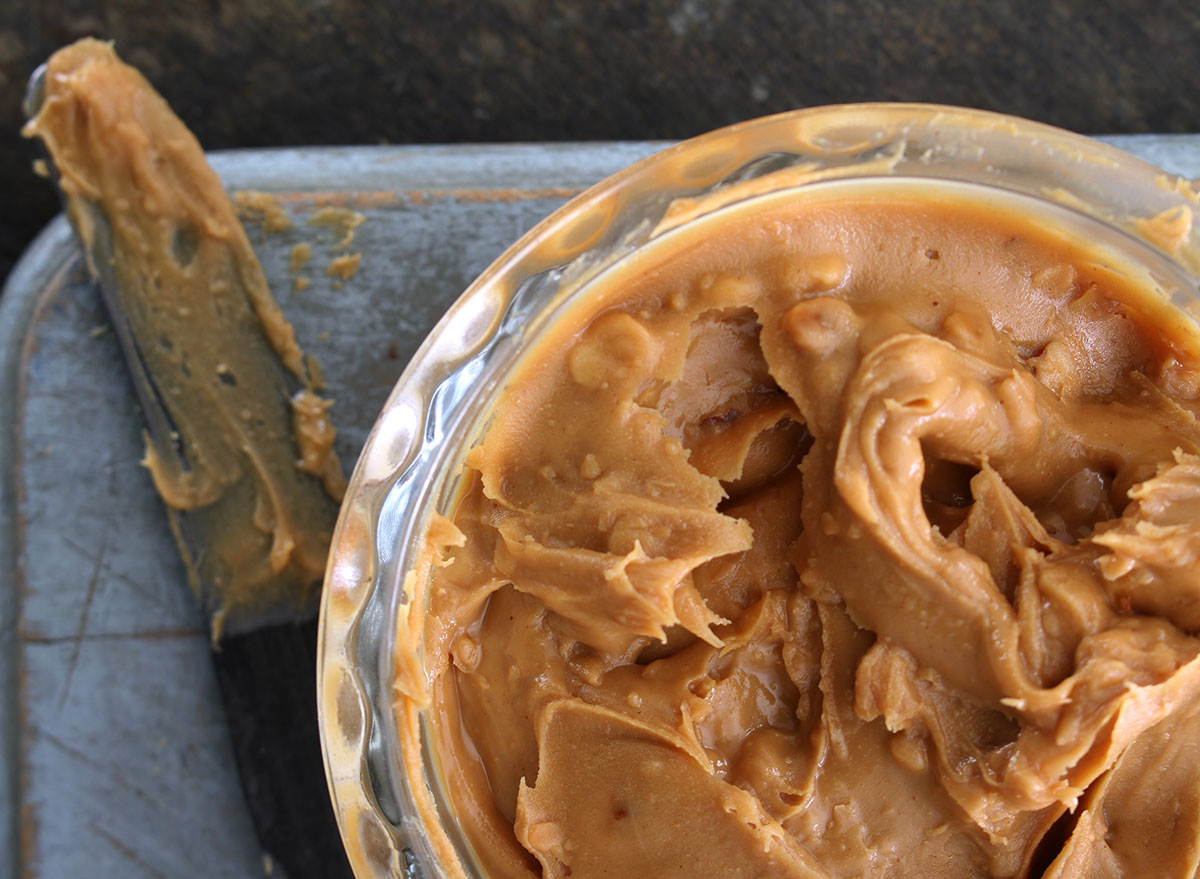
Don't try to improve your health by ditching full-fat peanut butter for the lighter stuff. Many brands make up for the flavor they've taken out of your PB with tons of extra sugar and salt while reducing the amount of heart health-promoting monounsaturated fat. Go for an all-natural, no-added-sugar jar of peanut butter.
REALTED: We Tasted 10 Popular Peanut Butters &; This Is the Best!
Sports Drinks
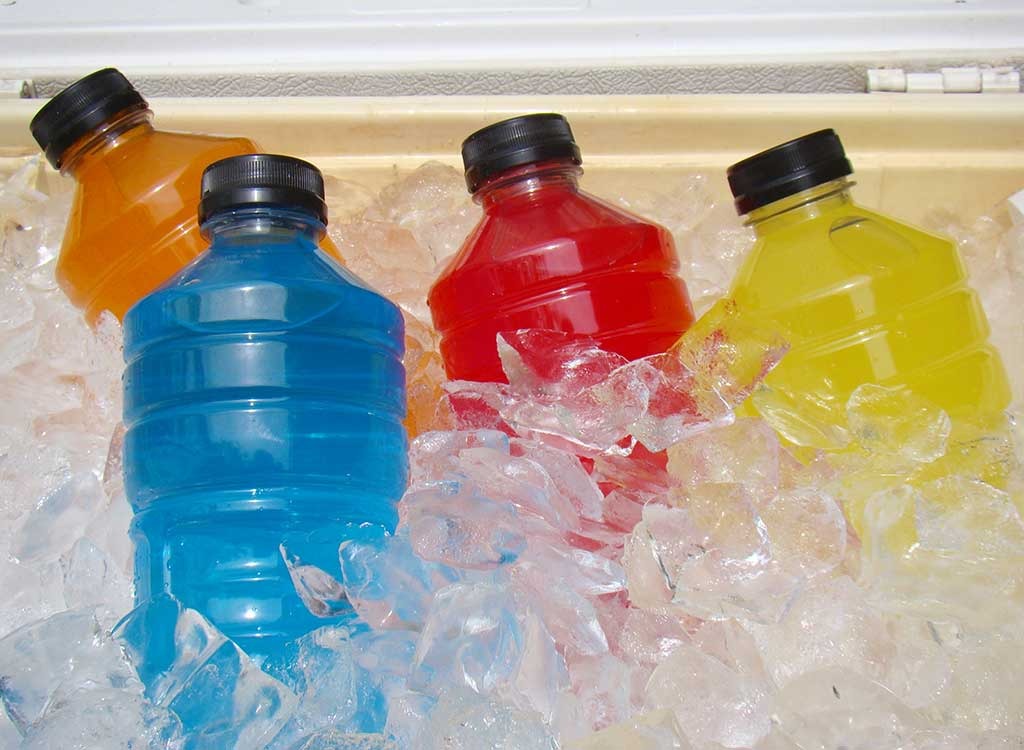
Even if you're sweating like LeBron in the playoffs, there's virtually no good reason for most people to be downing sports drinks. In addition to their potentially-carcinogenic artificial colors, most energy drinks have similar amounts of sugar to soda. Cut the sports drinks from your diet and hydrate the healthy way with detox water!
Maple Syrup
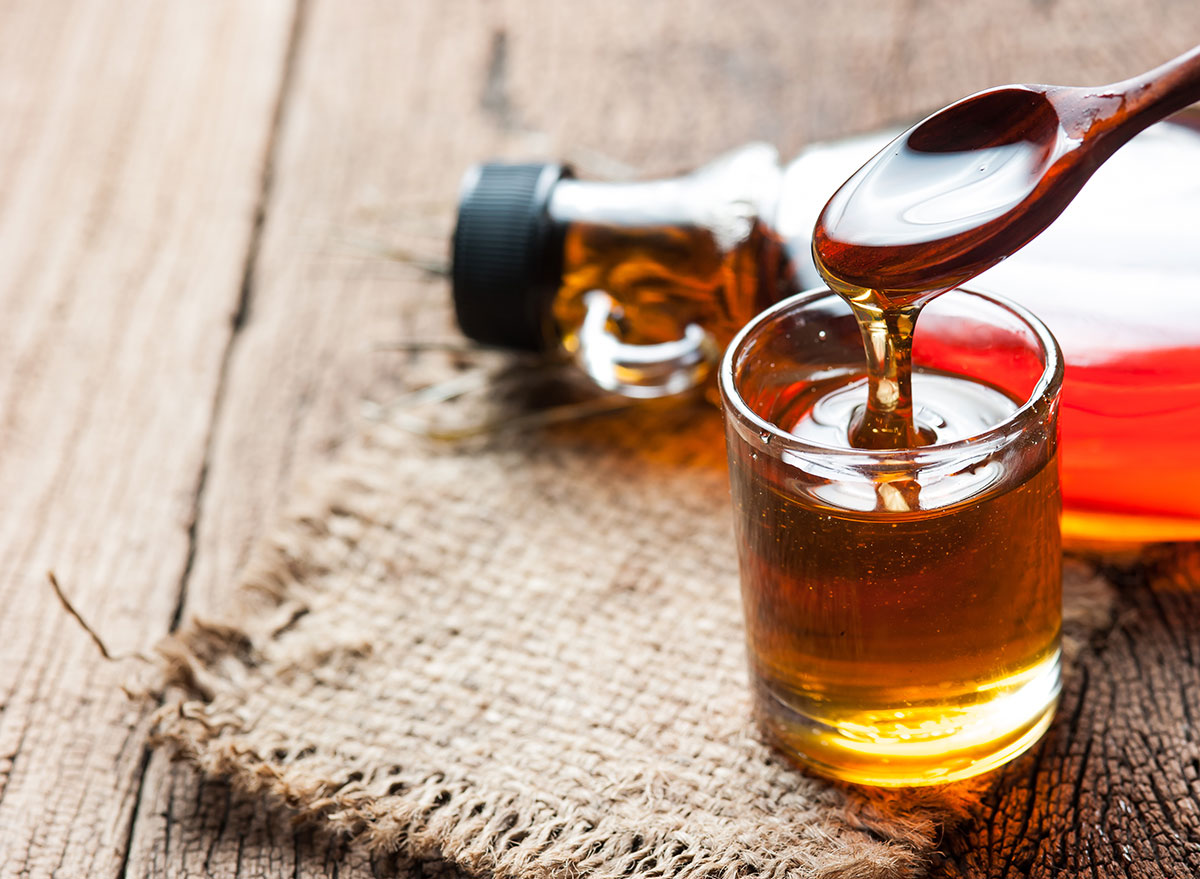
Bad news, maple syrup lovers: that sweet syrup is every bit as sugar-laden as table sugar—and much easier to go overboard with. Can you remember the last time you measured out just one tablespoon of maple syrup before dousing your pancakes?
Flavored Iced Tea
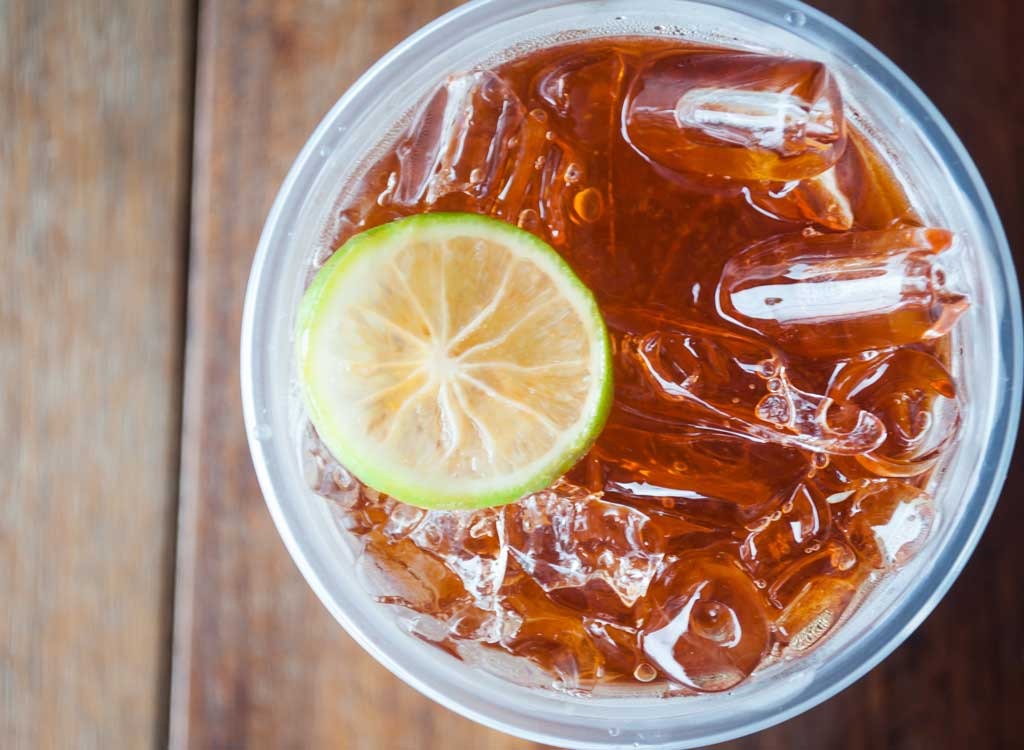
Flavored iced teas are no friend to your waistline. While many teas are loaded with inflammation-fighting antioxidants, the sweeteners they contain—like 24 grams of sugar in a 16-ounce lemon Nestea—can cause insulin spikes and increase your risk of weight gain. For a healthier alternative that's just as flavorful, squeeze some lemon into an unsweetened tea instead.
Wraps
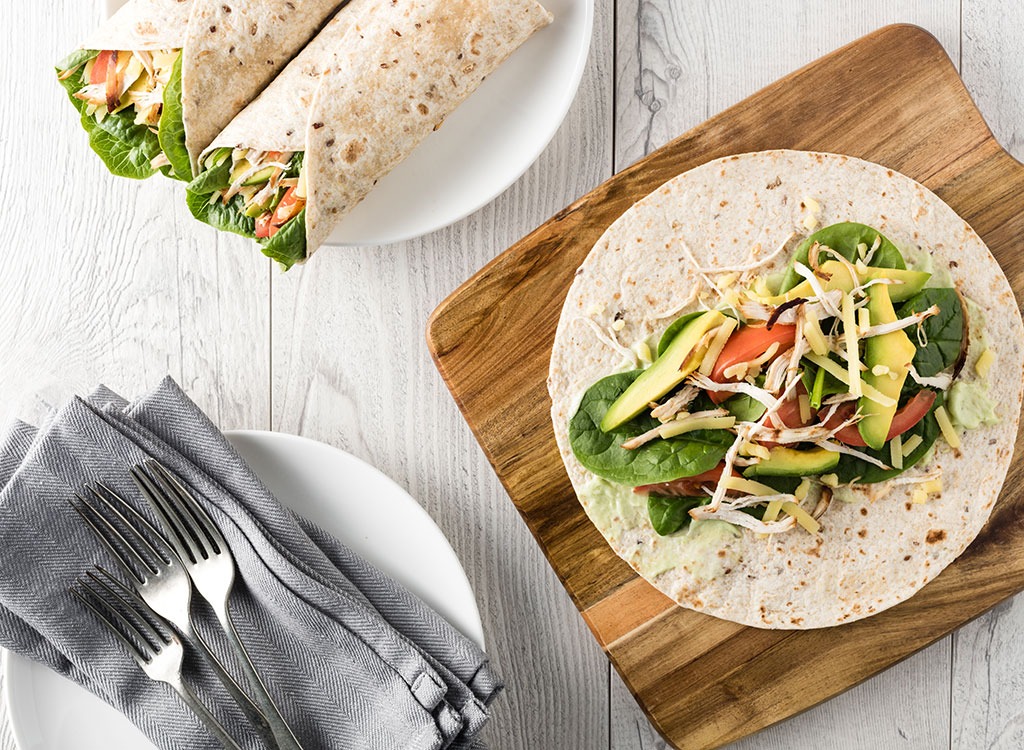
You might be surprised to hear that wraps aren't actually saving you many calories when compared to sliced bread. One Toufayan Organic Sprouted Whole Wheat Wrap has 160 calories, just as many as you'd get in two slices of whole-grain bread. Plus, it contains only one gram of fiber!
Whole Grain Cereals
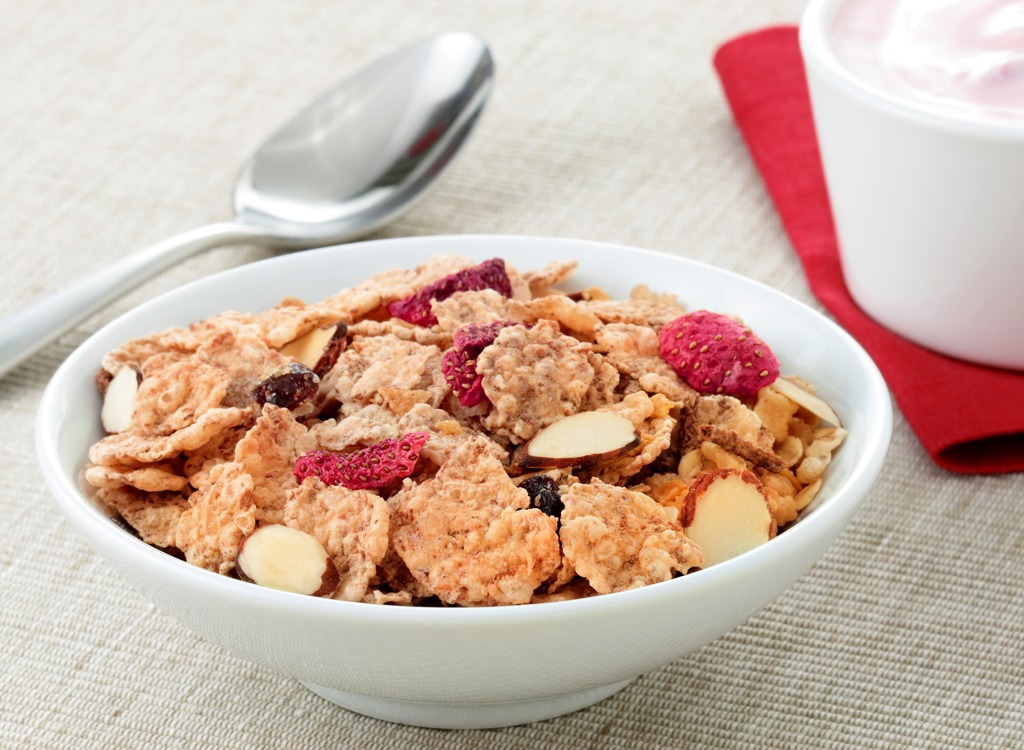
Whole grains can be a good addition to your diet, loading it with filling, gut health-promoting fiber, but that doesn't mean your whole-grain cereal is healthy. Look out for a brand that boasts 8 grams of sugar or less per serving. Cereal—yes, even the "healthy" ones—can be full of sneaky sugar.
Pretzels
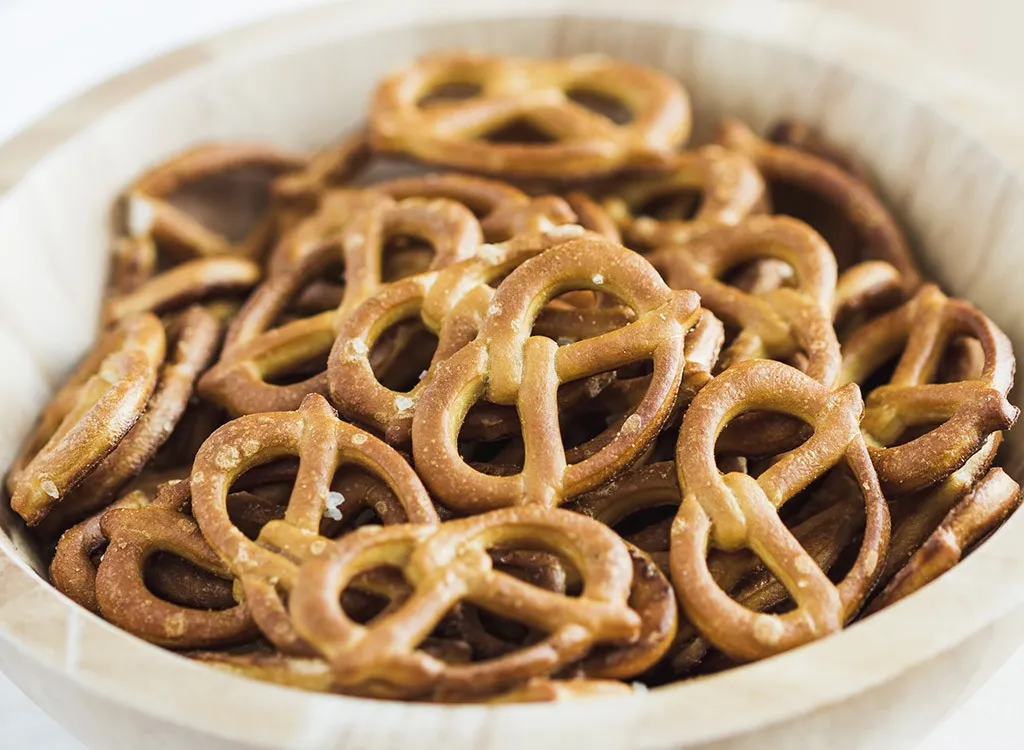
While they may be lower in calories than other bar fare like chicken fingers and fries, pretzels aren't exactly a healthy snack. Just a 1-ounce serving of salted pretzels packs over 300 milligrams of sodium and 110 calories, most of them in the form of white flour. Combat the effects of your past pretzel offenses with the 20 foods that lower blood pressure.
Egg White Omelets
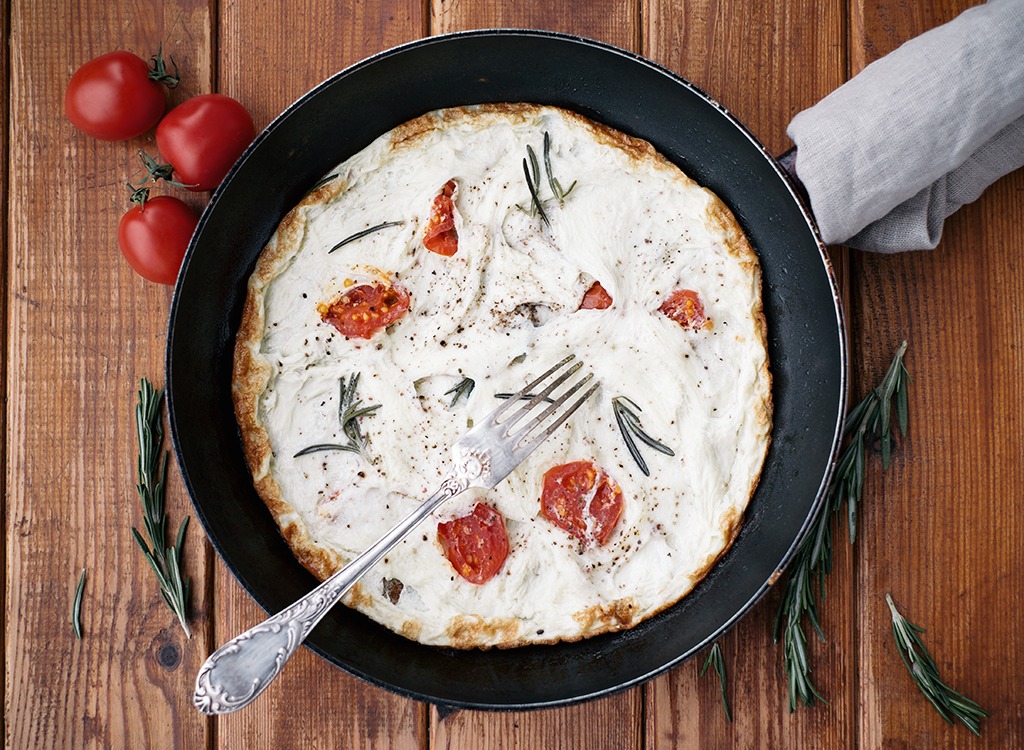
When you opt for eggs without the yolks, you're not only missing out on some satisfying fat, but you're also reducing your intake of energizing B12, weight loss-boosting vitamin D, and a means of raising your good cholesterol. To keep cholesterol in check, opt for combining one whole egg and one egg white in your omelets.
Spinach and Artichoke Dip
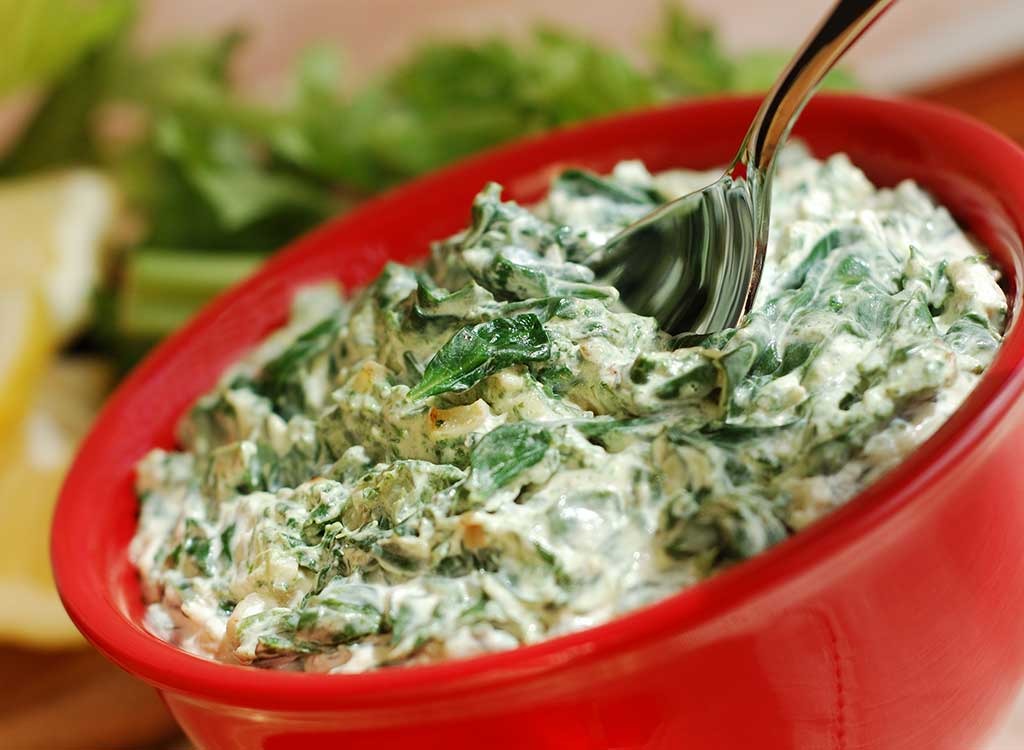
It may have two different veggies in it, but spinach and artichoke dip is no health food. An order of Applebee's Spinach and Artichoke Dip has 950 calories and other recipes call for as much as a jar of alfredo sauce—and this is just an appetizer.
Turkey Burgers
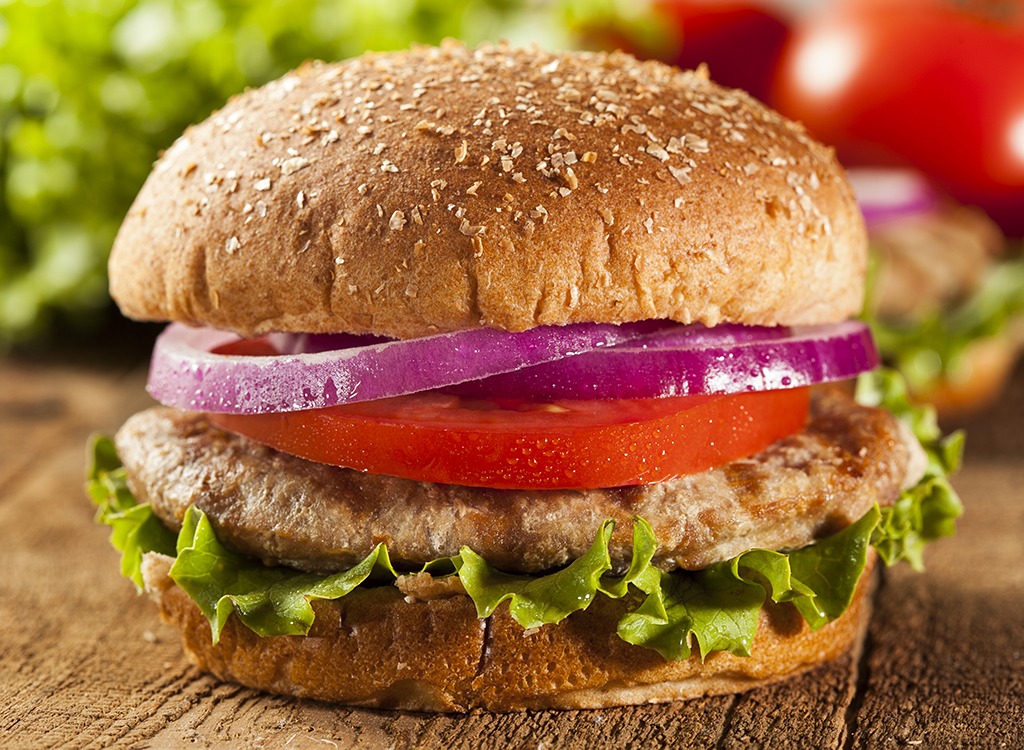
Ordering a turkey burger instead of beef might not do as much for your health as you think. Not only is dark meat turkey nearly as high in fat and calories as beef, but many restaurants also add salt, butter, and other oils to their light turkey to keep it moist, making it just as fat-laden as a regular hamburger. Instead of a fattening turkey burger, slim down with the 29 best sources of proteins for weight loss.
Diet Soda
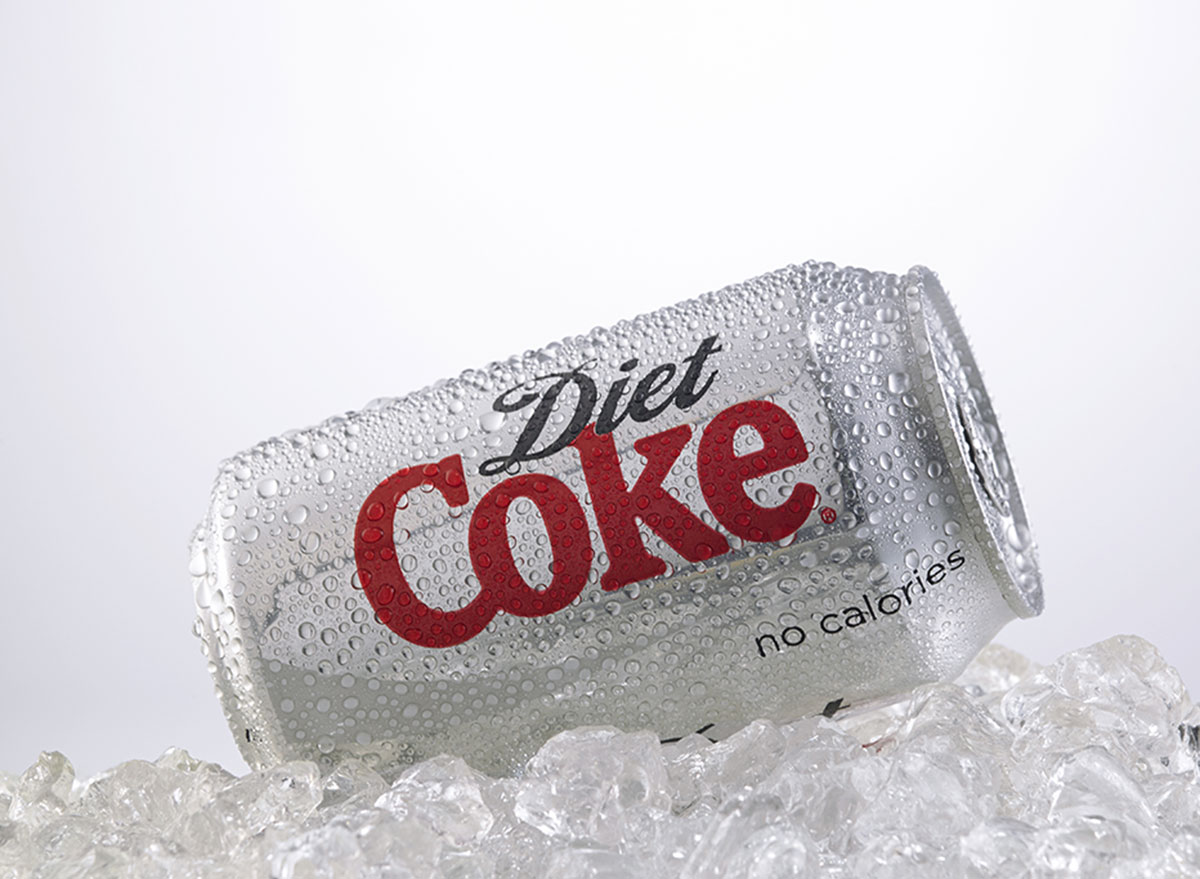
Your diet soda habit could be the reason for your less-than-stellar health. In addition to their obesogenic artificial sweeteners, diet sodas are loaded with caramel color, which Johns Hopkins Bloomberg School of Public Health researchers have found to be potentially carcinogenic. Plus, it's got tooth enamel-eroding carbonation and additives.
Fruit Salsa
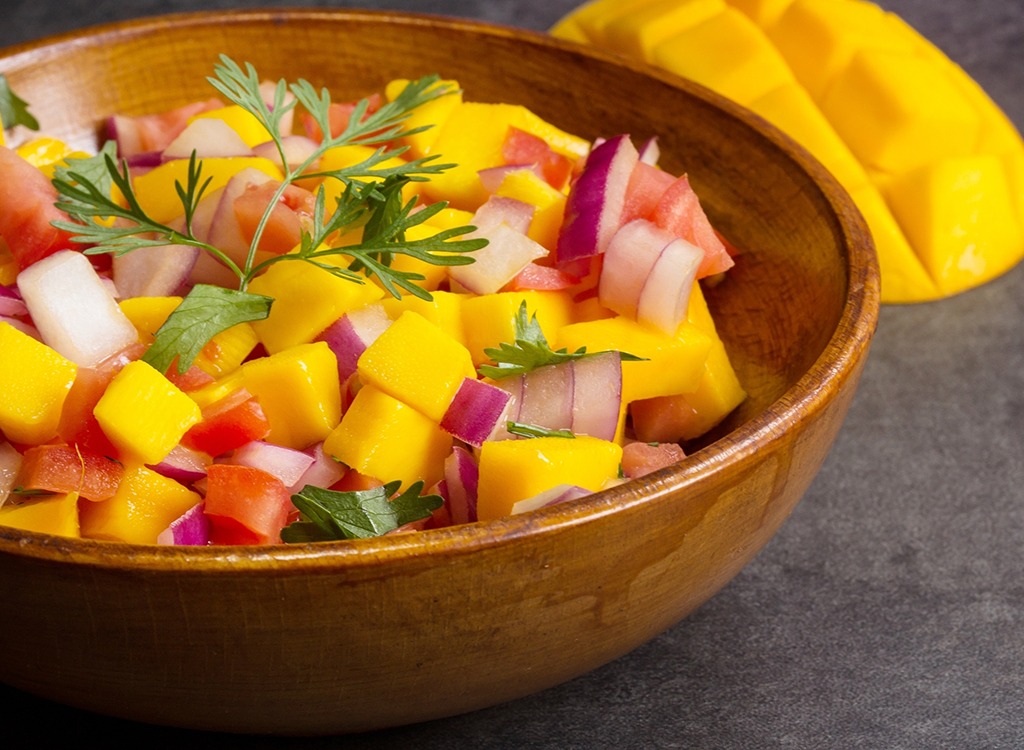
Spice up your meals by opting for salsa that's spicy, not sweet. Fruit salsa may seem like a good bet, but in addition to the natural sugar from the fruit in it, it's often sweetened with sugar or high fructose corn syrup and packs less of the metabolism-boosting capsaicin you'd get from spicier versions.
Banana Bread
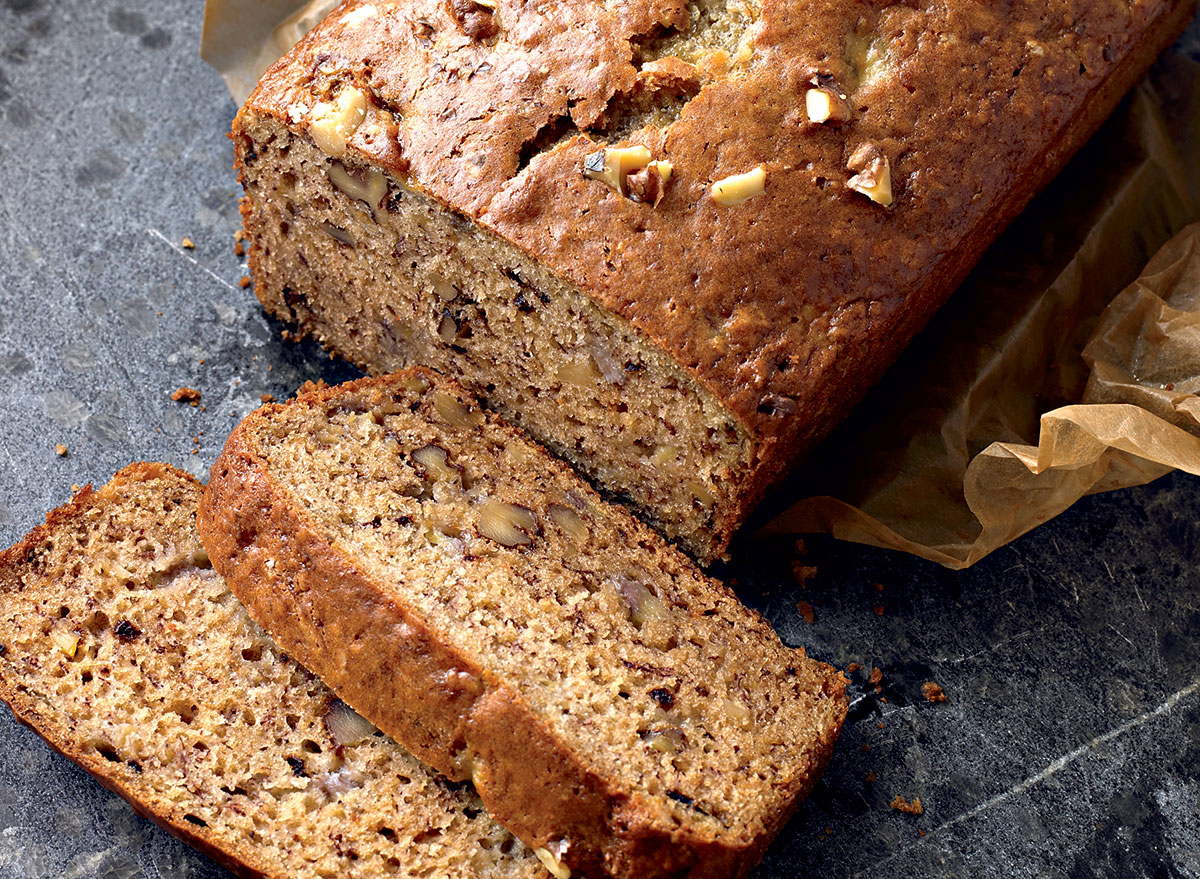
Just because it has fruit in its name doesn't mean banana bread is a health food. Sugar, butter, and white flour are also major components of this sweet treat.
Deli Turkey
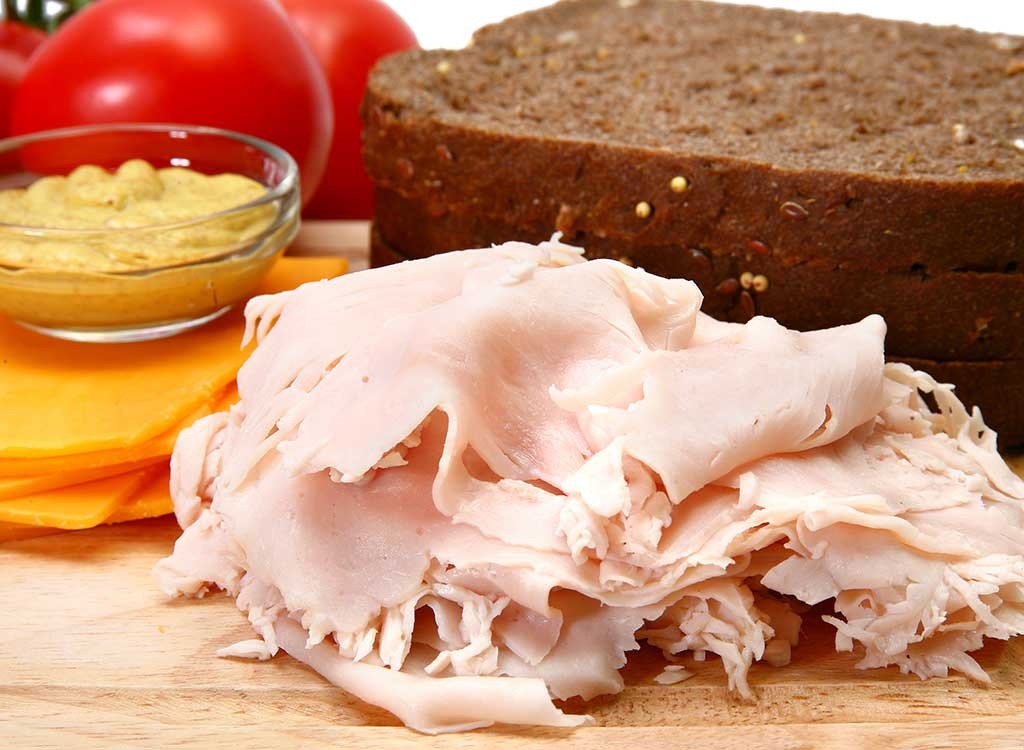
You probably know that processed meats like salami and bologna aren't health foods, but that supposedly healthy deli meat could be just as bad. Deli turkey is often loaded with sodium and artificial flavors, as well as nitrates, which have been linked to cancers of the digestive tract.
Bran Muffins
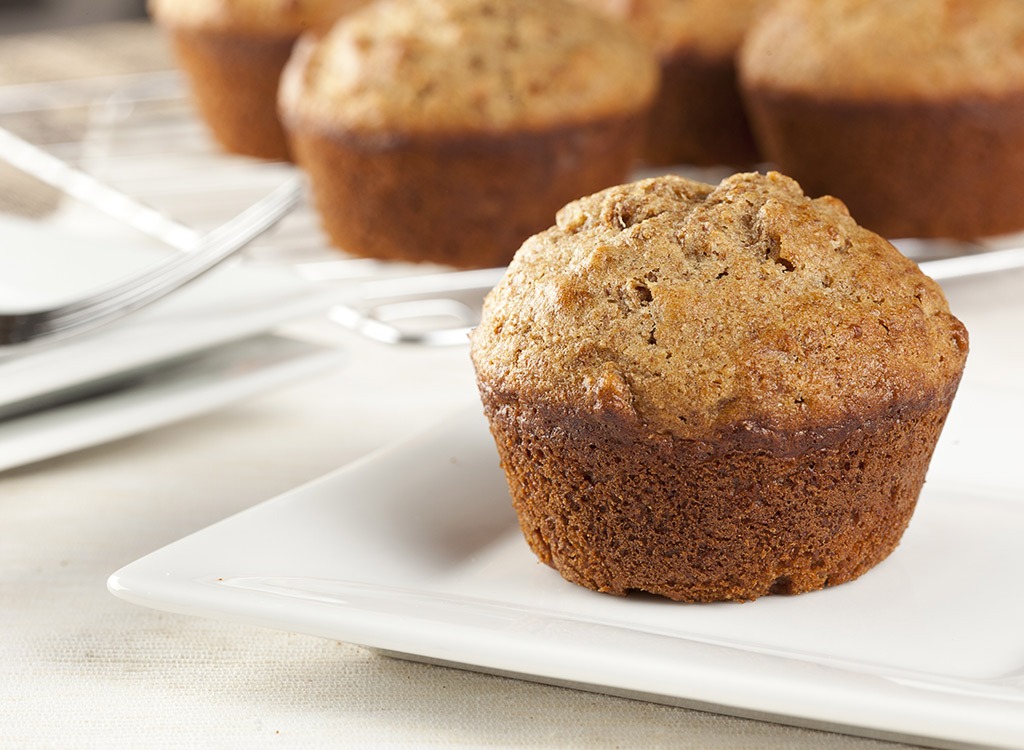
That bran muffin may be hiding a bitter secret: sugar. Martha White's Honey Bran Muffin Mix contains a whopping 260 calories per half cup of dry mix and 27 grams of sugar—that's nearly seven teaspoons worth of the sweet stuff!
Prepared Salmon
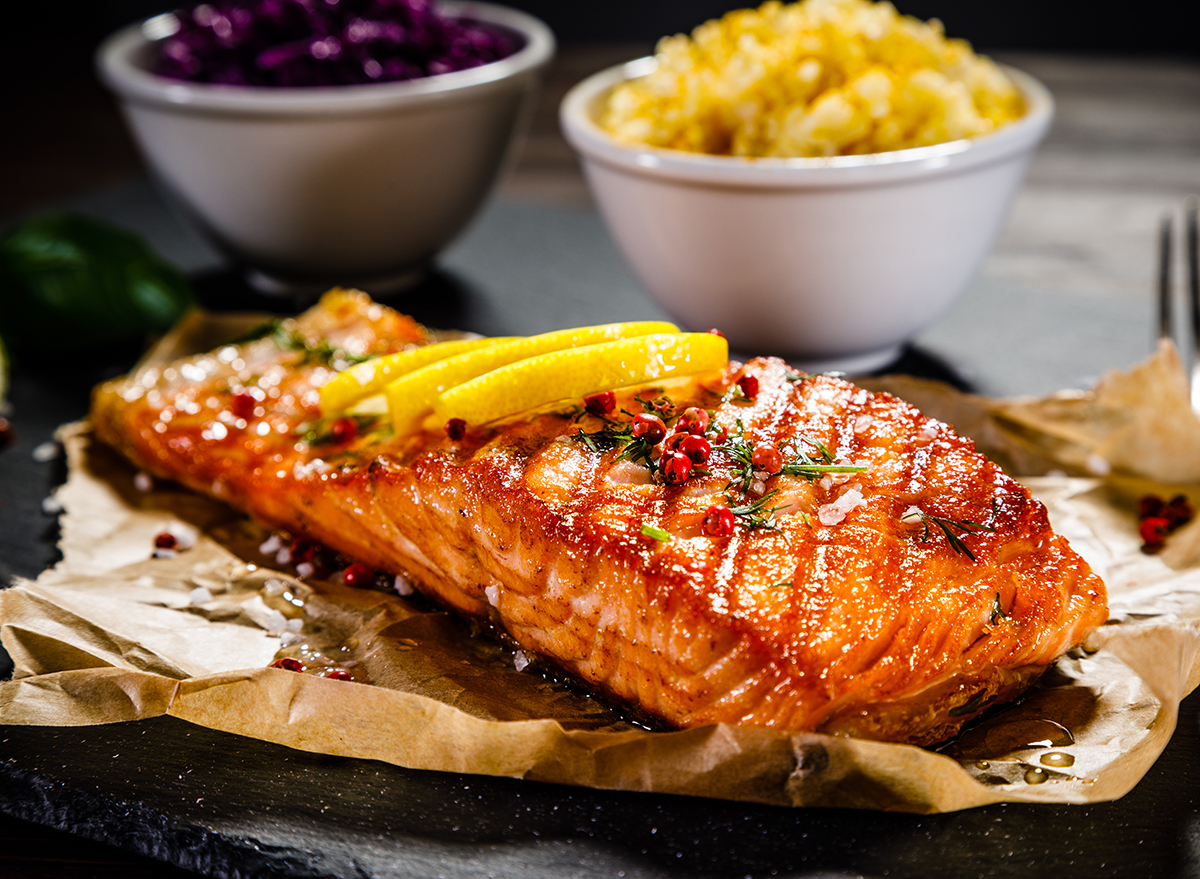
Salmon's omega-3 content hardly makes up for the less-than-healthy sauces used to complement this fatty fish. From sugary barbecue to plain butter, salmon is regularly coated in toppings that have no place in a healthy meal.
Fruit Cocktail
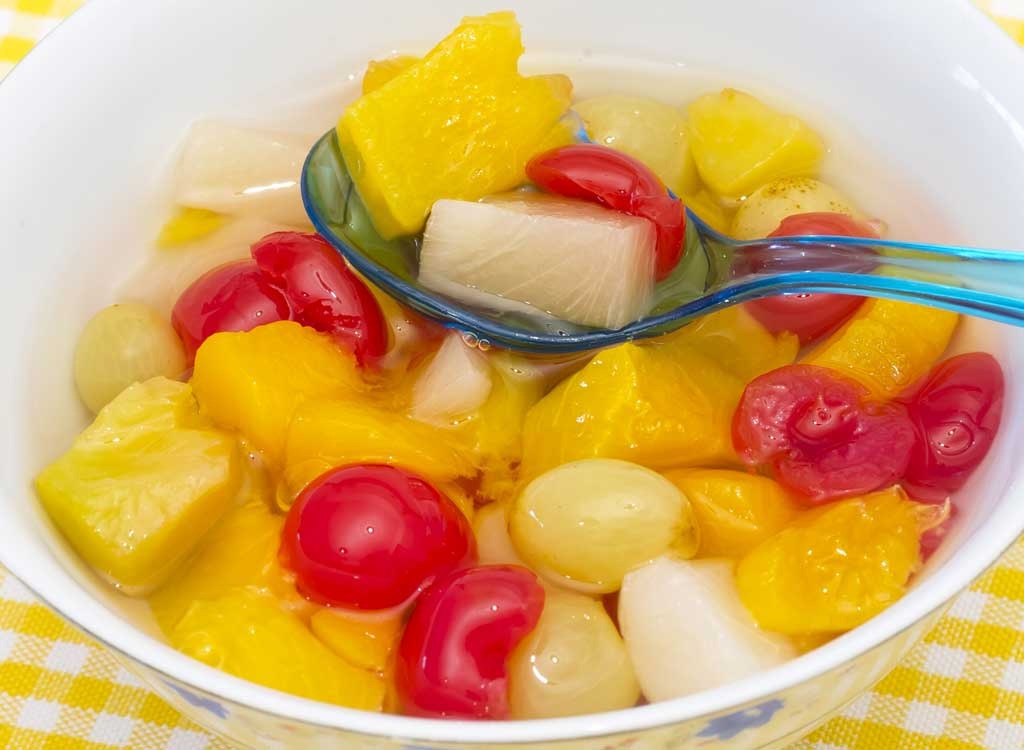
Fruit can be a great addition to your diet—as long as you're not soaking it in syrup first. In addition to the BPA that lines many fruit cocktail cans, a single cup of fruit cocktail in syrup can pack upwards of 37 grams of sugar, more than you'd get in an equivalent amount of soda.
Veggie Straws
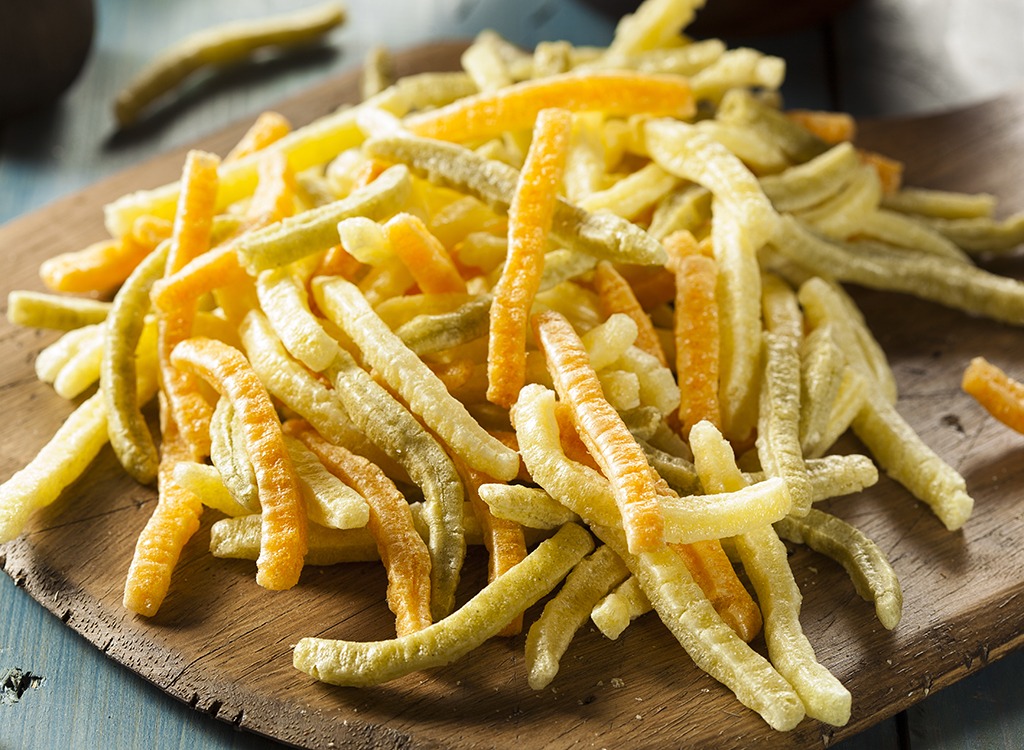
Veggie sticks have a whole lot of good marketing to thank for their reputation as a health food. In fact, most veggie sticks are little more than potatoes, oil, and salt with some vegetable coloring in them. A 6.7-ounce bag of Sea Salt Veggie Stix has 300 milligrams of sodium and not a single gram of fiber.
Honey-Roasted Nuts
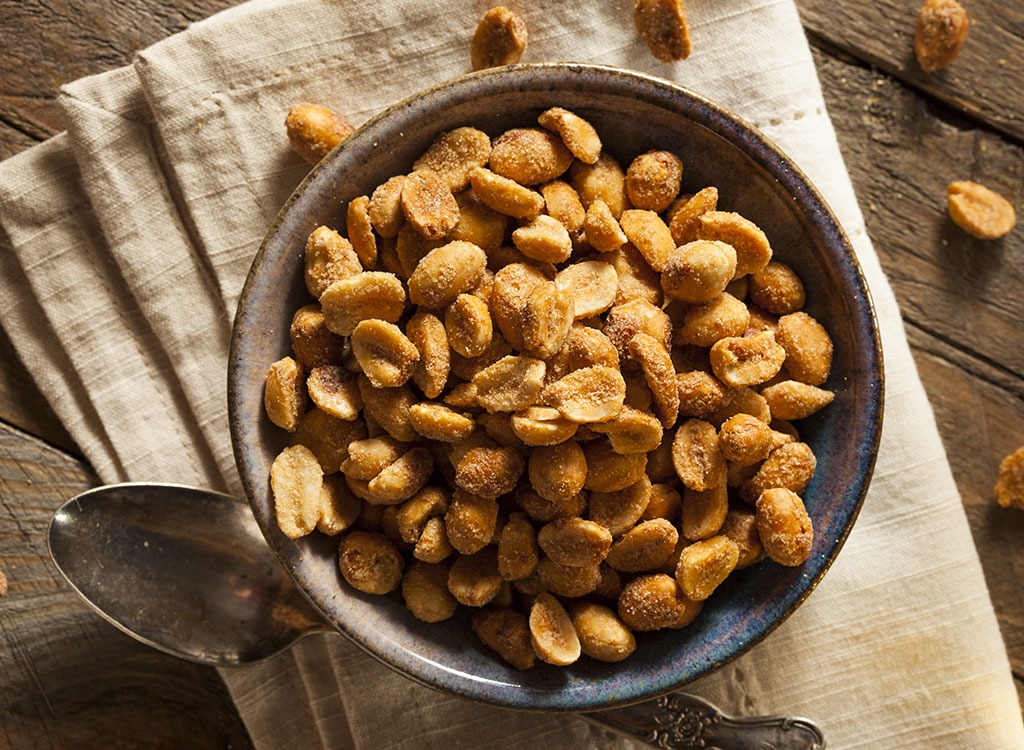
While honey may be an effective antimicrobial, those honey-roasted nuts are doing no favors for your health. The supposed honey coating on them is often little more than a mixture of brown sugar and butter, making this one highly-caloric snack you should definitely pass up.
Restaurant Baked Potatoes
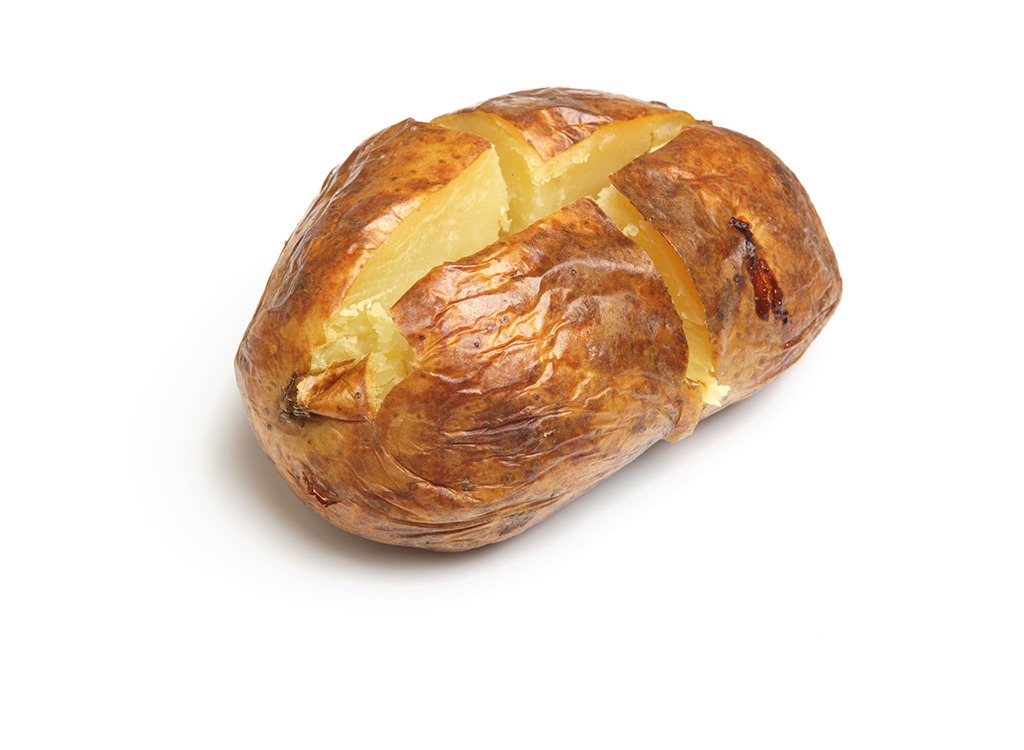
Baked potatoes may not be quite as bad for you as French fries, but that doesn't mean they're always a healthy choice. Most of the baked potatoes you get at restaurants have been heavily salted and brushed with butter to give them a crispy exterior, making them nearly as caloric as their deep-fried counterparts.
Energy Drinks

Slowing down on energy drinks might just be the first step toward better health. A single 8.4-ounce can of Red Bull has 27 grams of sugar—the same amount that lurks in a same-serving bottle of Sprite—as well as an amount of caffeine that may prove dangerous for some sensitive individuals.
Tomato Sauce
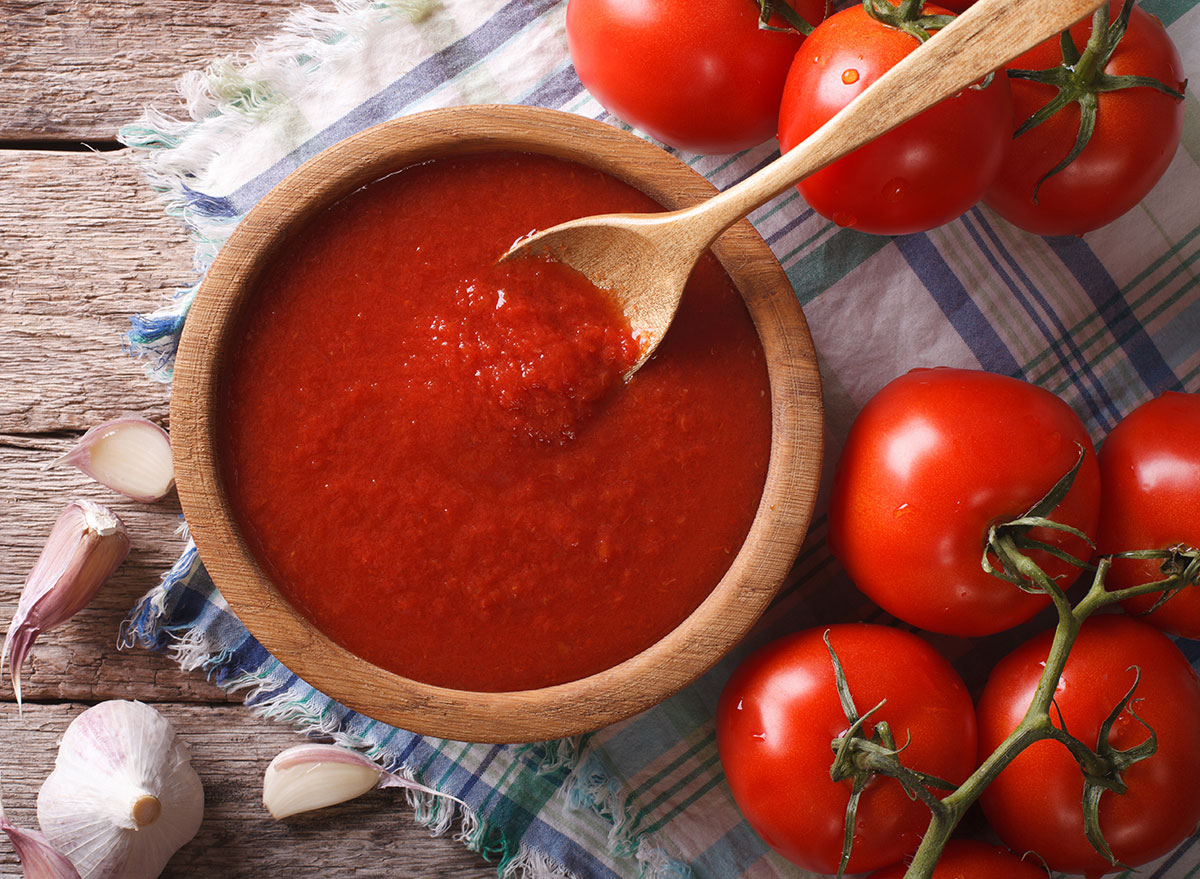
The veggies you're getting from pasta sauce hardly outweigh the damage its other ingredients may cause. Just a half-cup of Prego Traditional tomato sauce has nearly a third of your daily sodium and 9 grams of sugar, making it nowhere near as healthy as you might imagine. If you're eager to add some flavor to your pasta, try making your own sauce at home, or season it with a bit of olive oil and fresh herbs instead.
Fruit Snacks
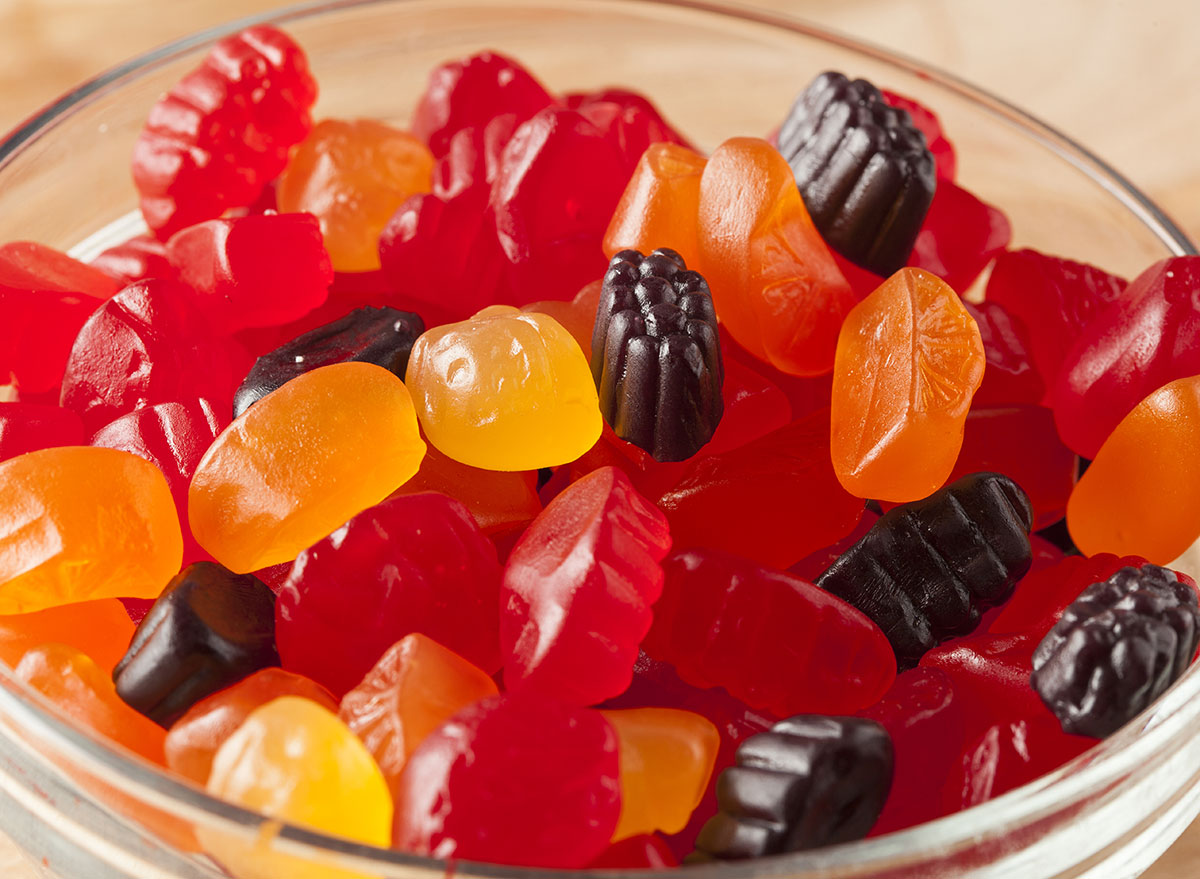
Just because fruit snacks have the word fruit in their name doesn't mean they're anything more than glorified candy. A 90-calorie pouch of Welch's fruit snacks packs 12 grams of sugar in the form of corn syrup, sugar, and juice, while having not a single gram of filling fiber.
Seasoned Rice
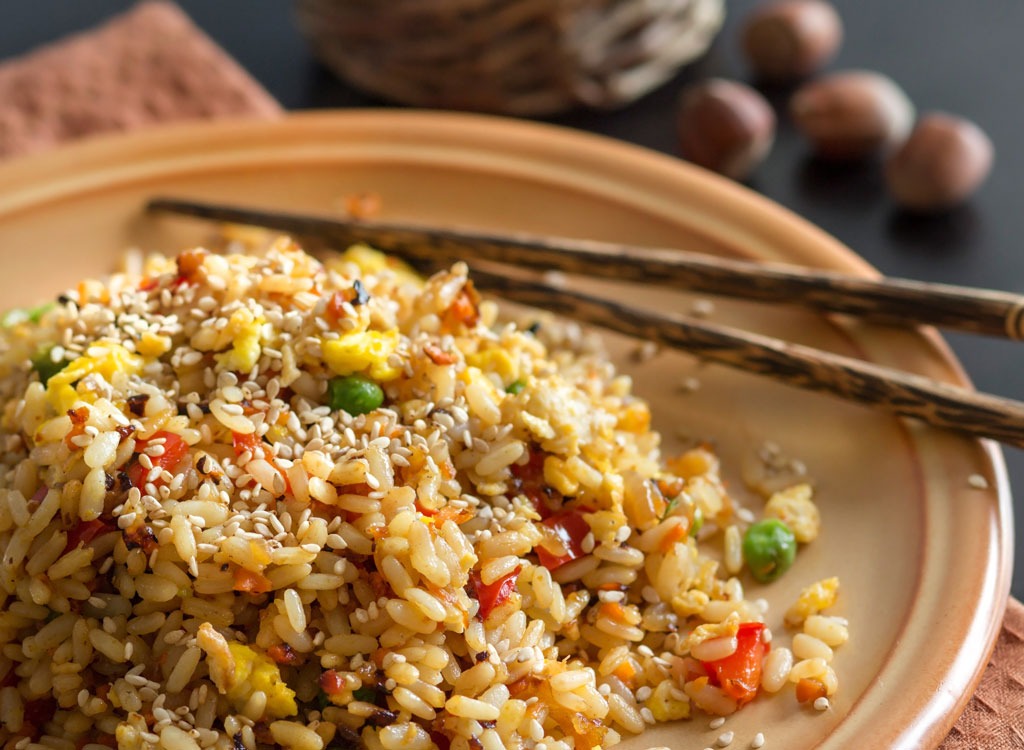
Don't let seasoned rice mixes sabotage your weight loss. One cup cooked of Uncle Ben's Flavor Infusions Parmesan & Butter rice packs a whopping 510 milligrams of belly-bloating sodium, while their traditional Instant Brown Rice has none. For a healthier convenient meal, turn to these best frozen foods in America!
Fast Food Salads
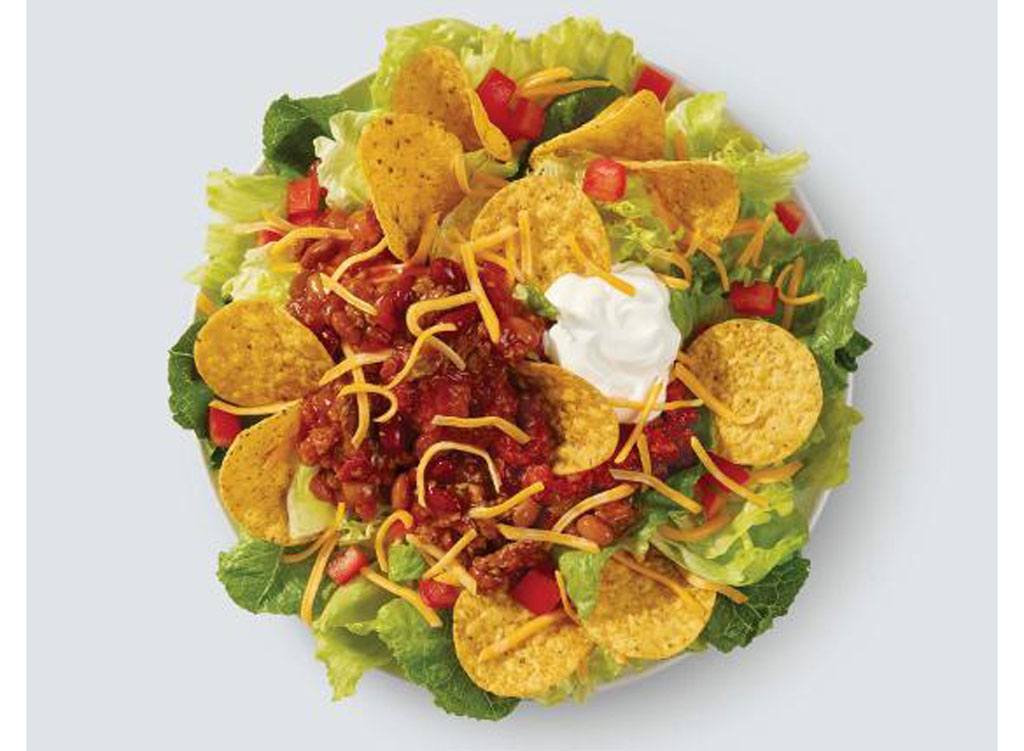
Fast-food chains are trying to market to health-conscious consumers with their salads, but much of what's on their salad menu is just as bad as their burgers. Wendy's Full Taco Salad, for example, boasts 690 calories and 1,890 milligrams of sodium. Yikes.
Sugar Substitutes
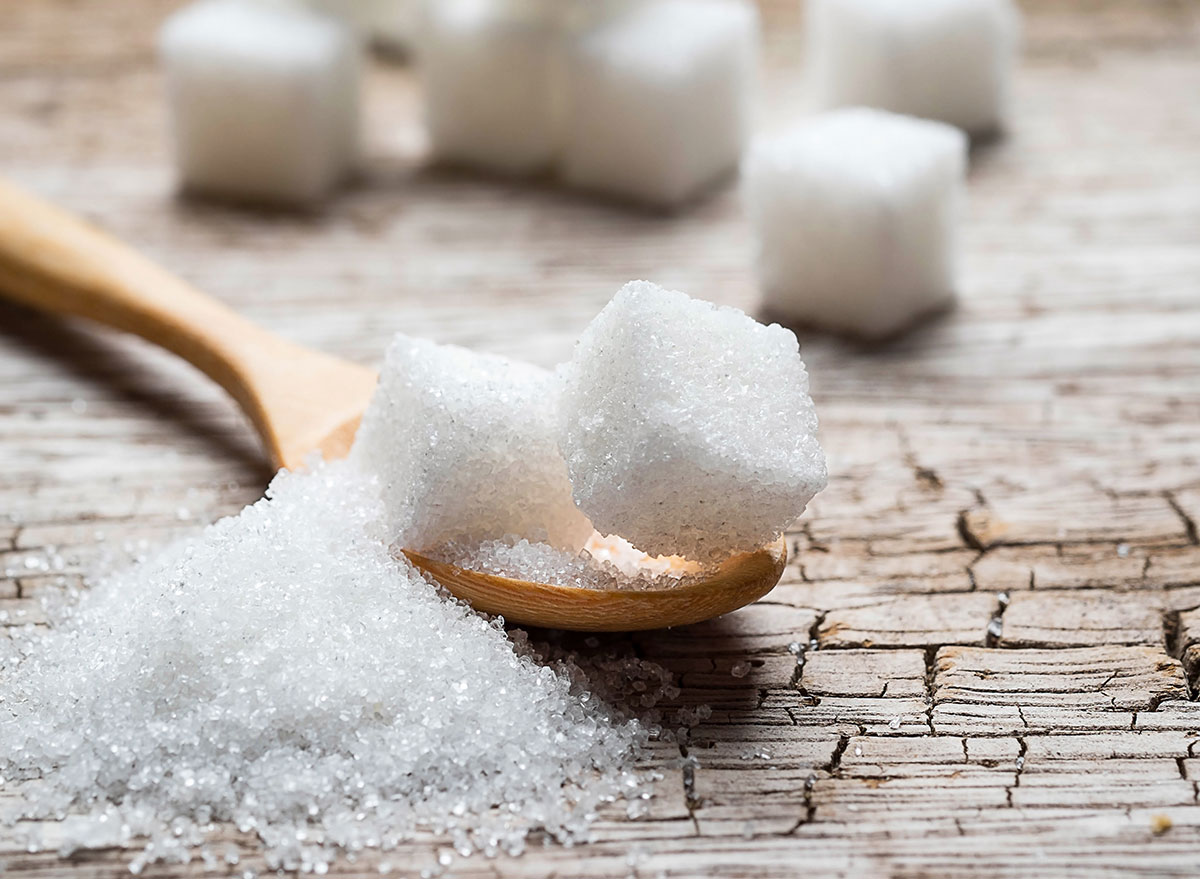
Those sugar substitutes may be calorie-free, but that doesn't make them health food. Research conducted at Yale University indicates that artificial sweeteners can increase your overall caloric intake, make you crave real sugar, and may put you at risk for diabetes and obesity—just like the real stuff.
Agave Nectar
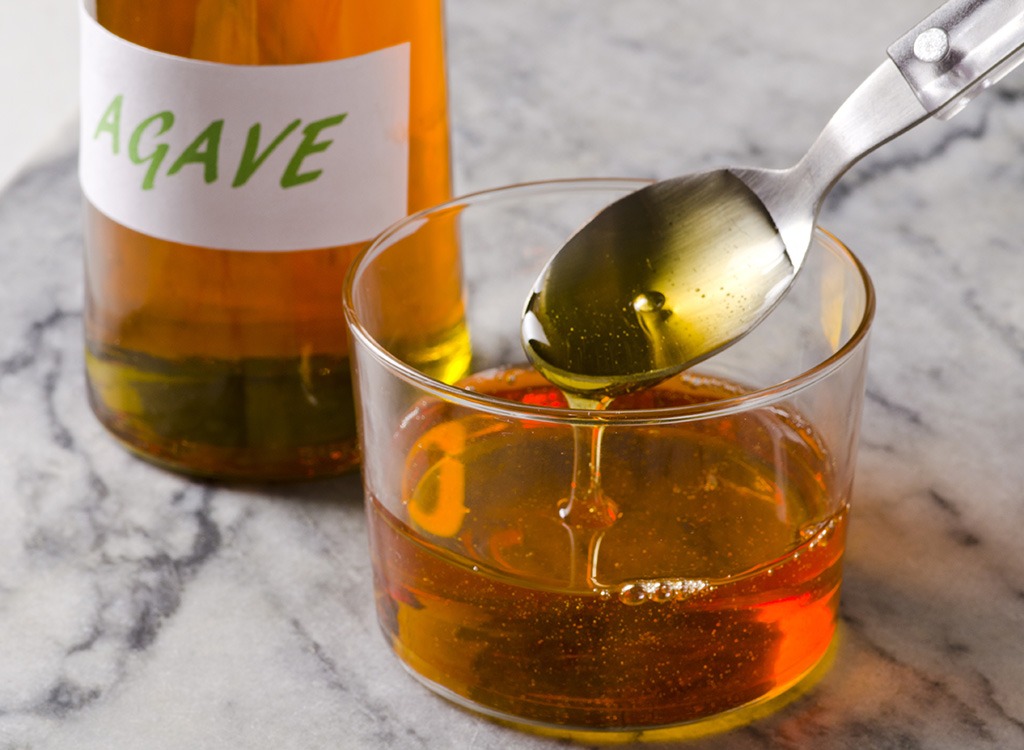
Don't look to agave nectar for a healthy solution to your sugar cravings. Agave nectar is 90 percent fructose, which is significantly linked to obesity and insulin resistance, a study in Nutrition & Metabolism found.
Breakfast Porridge Mixes
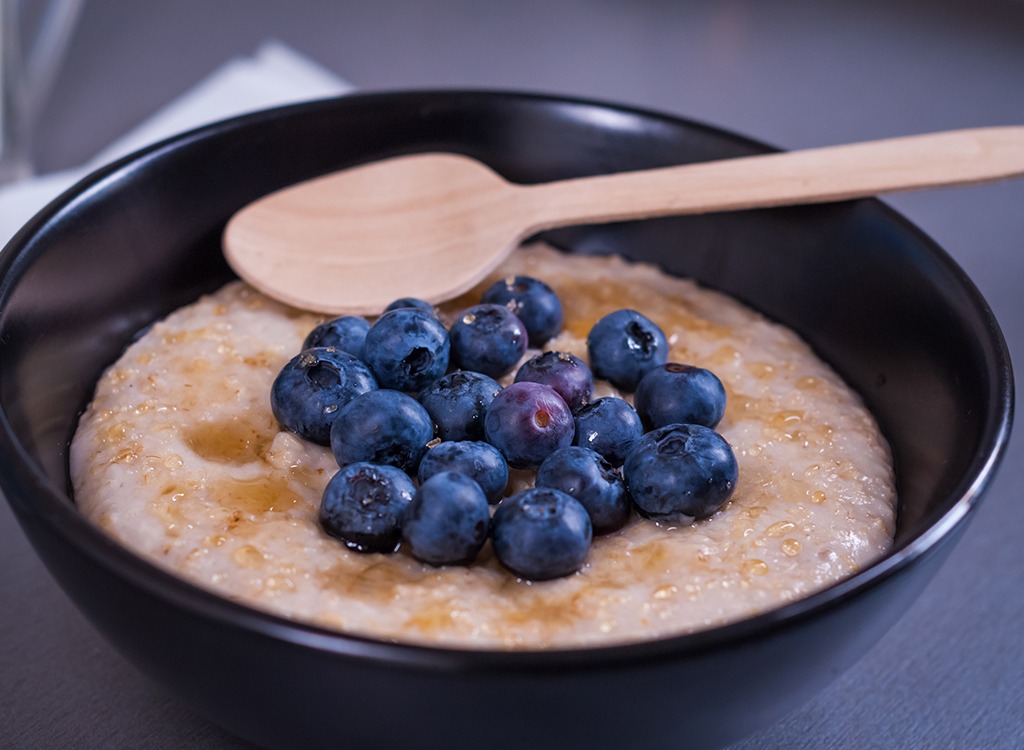
Starting your day with Cream of Wheat or similar finds means you're starting things off on the wrong foot. Just one packet of Maple Brown Sugar Cream of Wheat packs 13 grams of sugar and just a single gram of fiber—making the breakfast food a definite contributor to a bloated belly and weight gain. Try plain steel-cut oats instead, and flavor your bowl with our best oatmeal toppings.
Baked Beans
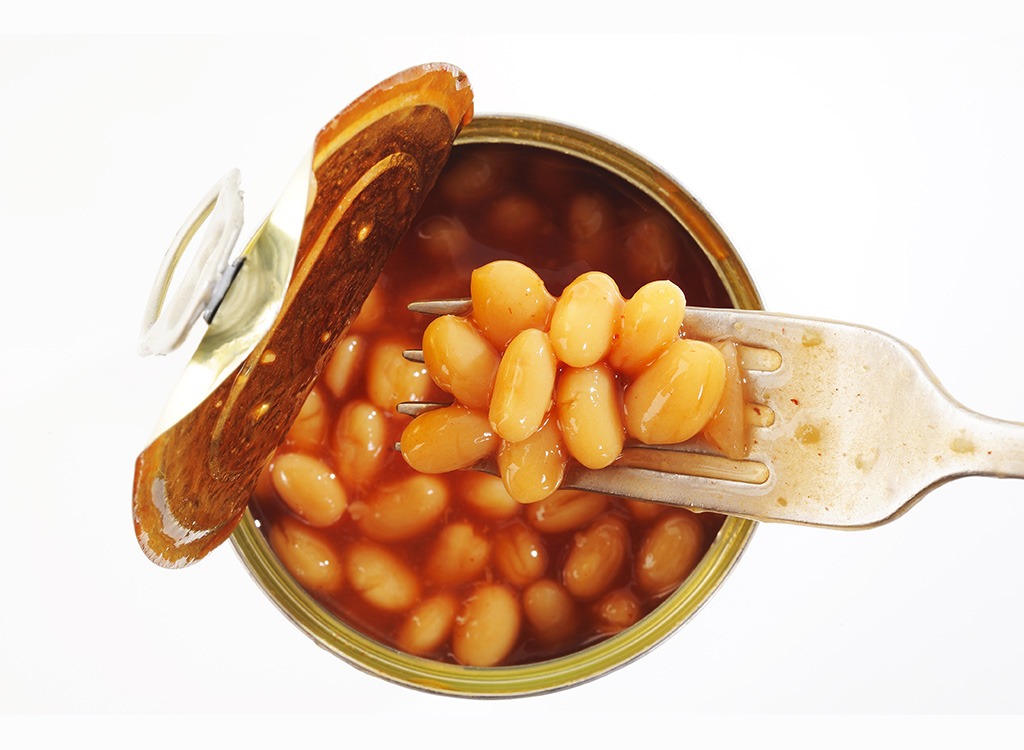
While beans on their own can be a healthy choice, baked beans are anything but. A half-cup of Bush's Original Baked Beans has 140 calories but packs 550 milligrams of sodium and 12 grams of sugar—more than in a Reese's Peanut Butter Cup!
Almond Milk

A little almond milk in your coffee or cereal can be a healthy alternative to dairy, but not all almond milks are created equal. Many non-dairy milks are loaded with sugar, artificial flavors, and belly-bloating carrageenan, making them a recipe for a jiggly middle.
Fish Tacos
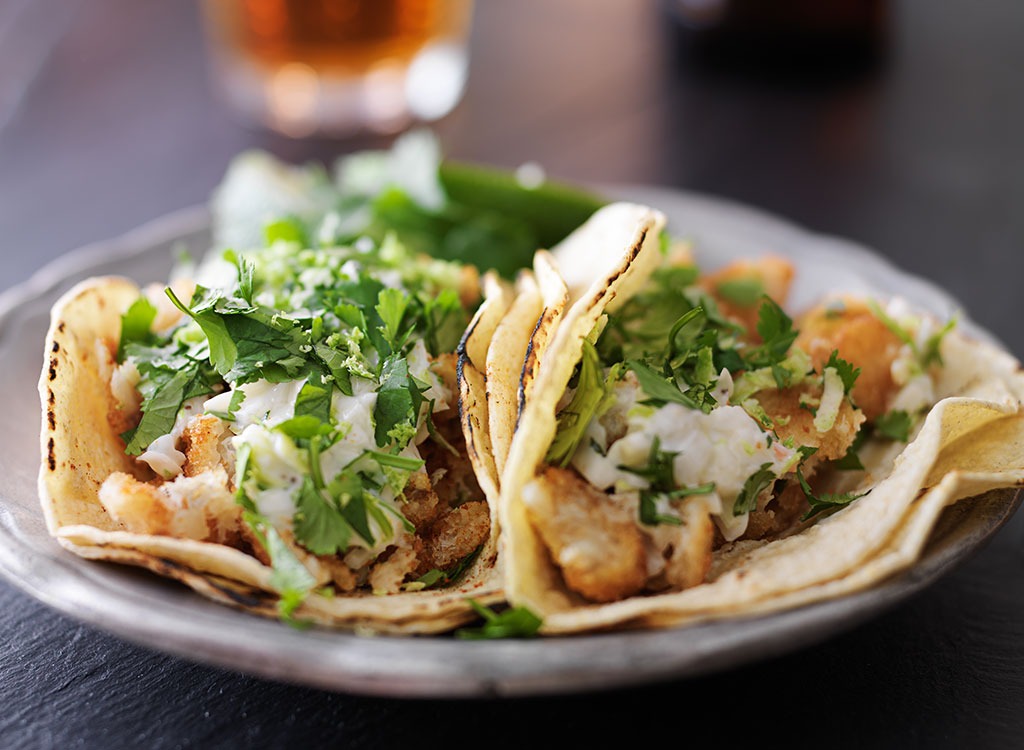
Although fish tacos are often lower in fat than their beef counterparts, they're not always a healthy alternative. Tilapia, the fish most commonly used in fish tacos, has a high omega-6 to omega-3 ratio, making this a potentially weight gain- and inflammation-inducing meal. And that's just for tacos of the baked variety. If your fish is breaded and deep-fried, you're adding tons of inflammatory wheat and saturated fat to your meal, too.
Couscous
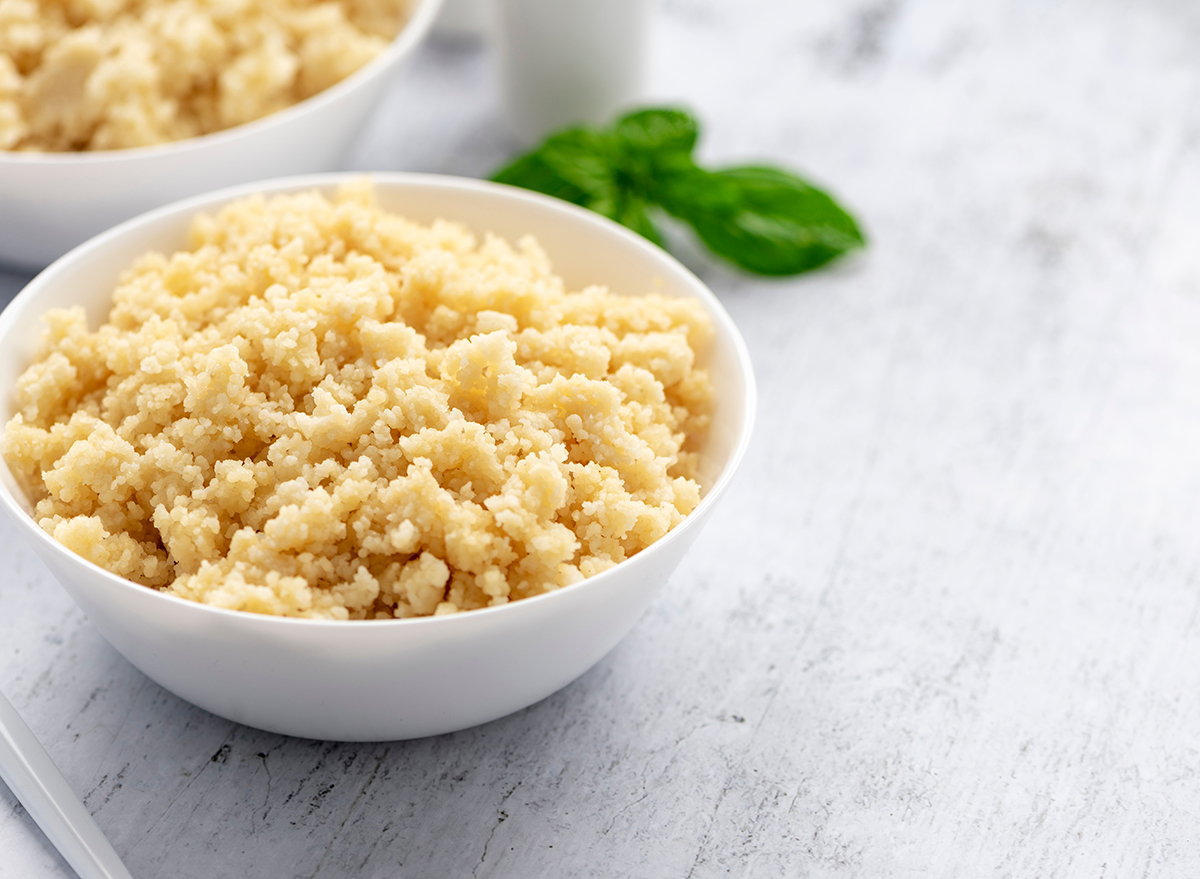
While many people assume that couscous is a whole-grain, it's actually just little balls of semolina—a refined grain that lacks fiber. That's right: it's just white pasta with some seriously good marketing.
Granola Bars
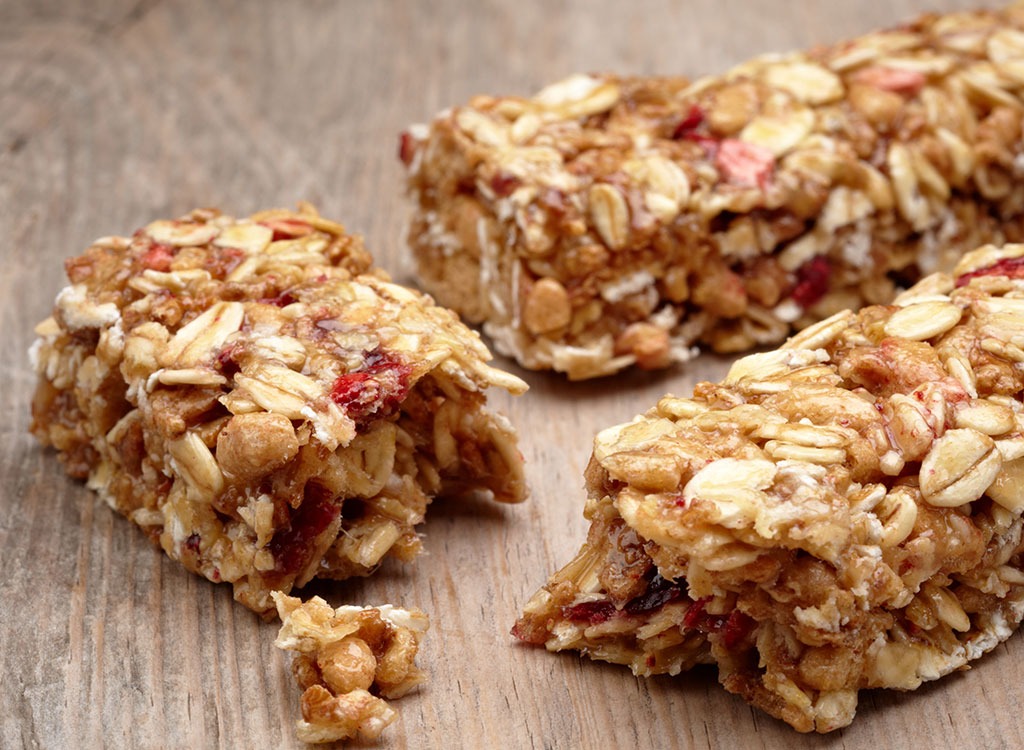
Much like granola itself, granola bars are hardly health food. However, unlike granola, granola bars often have chocolate chips and even frosting on them—racking up the sugar content. If you're looking to lose weight or get healthy, you should definitely keep these out of your shopping cart.
Frozen Meals
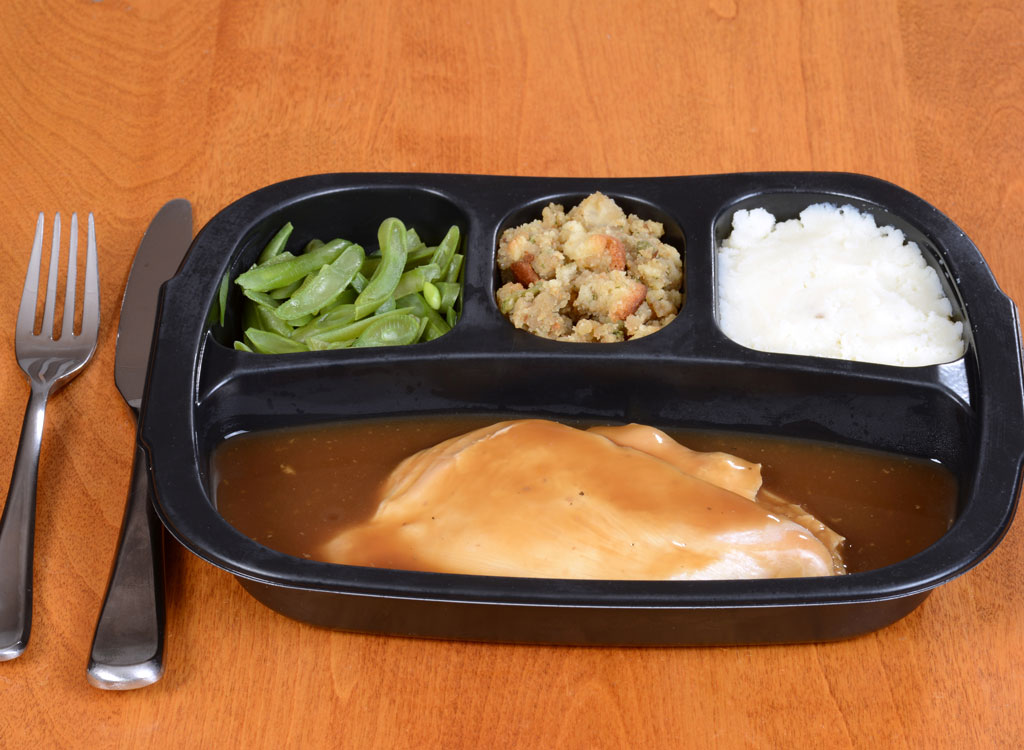
That frozen diet dinner is as sad as it is bad for you. To maintain some semblance of flavor in low-calorie frozen meals, they're generally loaded with added sugar and salt instead.
Skip these diet duds and check out the 100 Healthiest Foods on the Planet!
